Congratulations stream in from around the globe
Congratulations for Nelson Mandela University’s new Medical School have been streaming in from leading voices in health, both in South Africa and around the world.
Professor Ahmed Bawa, CEO Universities South Africa:
“This medical school will inject significant new capacity into our national health system. Its intention to produce more socially-rounded graduates will help us to inject new levels of diversity and new learnings about the role of medical graduates in helping to achieve better health outcomes. My heartiest congratulations!”
Higher Health CEO Professor Ramneek Ahluwalia:
“On this momentous day the dream of South Africa is to build a healthcare system which speaks to our communities. The need is for healthcare professionals willing to serve in rural South Africa and I wish you all success in building this for the next generation, giving opportunities that can only be for the best of our country. Covid-19 is a brutal reminder that infections will keep coming and the only way we can fight this kind of threat is by building a strong healthcare system, through our own university system building medical schools and brilliant healthcare professionals. We look forward to partnering and working with the medical school.”
Professor Solly Rataemane, Chairperson of the Medical and Dental Board of the Health Professions Council of South Africa:
“The Nelson Mandela University Medical School is a welcome addition and we wish strength and health to Professor [Zukiswa] Zingela and the academic leadership in their execution of this daunting task. Your medical school may be new but will remain equal to other older medical schools in terms of recognition and innovative programmes. Congratulations!”
Lord Peter Hain, Chair, Donald Woods Foundation:
“The Donald Woods Foundation looks forward to working with the new Medical School through our centre in Hobeni, offering unique research and training potential for your students in our frontline health work with local communities in this remote, poverty-stricken rural area.”
Dr Patrick Soon-Shiong, internationally renowned Transplant Surgeon, Bioscientist and Billionaire Businessman:
“What a proud day for the first medical students at a Medical School in my home town! The first 50 students today, the next 500 tomorrow is the hope, and you should be proud to be the first, as you are the future of this nation. The training of medical students and doctors in South Africa is one of the best in the world and I cannot tell you how excited I am that we are expanding the intellectual power of much-needed doctors. The reward of helping others is enormous. South Africa could be the Singapore of Africa with you as medical students.”
Former Chief Justice of South Africa, Justice Dikgang Moseneke:
“My warm congratulations for launching Nelson Mandela University Medical School. May it grow from strength to strength and continue to serve our country and its people.”
Professor Tiaan de Jager, Chair SA Committee of Medical Deans and Dean of the Faculty of Health Sciences, Pretoria University:
“This is an auspicious occasion for healthcare in South Africa and a giant boost for public health, especially as we face the ongoing global pandemic. Congratulations on the achievement of this long-held dream.”
Professor Anthea Rhoda, Dean Faculty of Health Sciences, University of Western Cape and Chairperson of the South African Committee of Health Sciences Deans:
“I would like to congratulate Nelson Mandela University on launching your Medical School … you will make the dreams of many South Africans come true as these young individuals, once qualified as doctors, will assist us in contributing to the healthcare needs of South Africa.”
Professor Ncoza Dlova, Dean and Head of School: Clinical Medicine, Nelson R Mandela School of Medicine, University of KwaZulu-Natal:
“On this happy occasion, let us embrace the dawn of a new era in the medical training of a new cadre of medical doctors. We salute you for not giving up on the vision you have had since 1946 and extend our firm support and hearty congratulations.”
Professor Jimmy Volmink, Dean of the Faculty of Medicine and Health Sciences, Stellenbosch University:
“We warmly congratulate Nelson Mandela University … this exciting development is an important and timely contribution to the capacity for training doctors in South Africa, a capacity which is currently insufficient to meet the country’s needs. It will also extend the scope of Mandela University’s interprofessional education and practice strategy for health professions education. We salute all those — including the late Professor Lungile Pepeta — who have worked so hard over many years to make this a reality.”
Professor Risenga Chauke, Dean of Sefako Makgatho Health Sciences University:
“We need more health workers to heal our nation and advocate for policy changes and training capacity. We therefore welcome the establishment and launch of the 10th medical school in South Africa.”
Professor Lionel Green-Thompson, Dean: Faculty of Health Sciences, University of Cape Town:
“Congratulations on this milestone! It is more significant when such a facility is within a strong faculty with an established legacy of education, delivering multiple cohorts of graduates from a broad range of health professionals already in the service of our people across the land.”
Professor Samuel Risenga, University of Limpopo School of Medicine:
“We are aware of the arduous challenges encountered during the establishment of this much-needed national treasure. We wish you a great journey as you set forth … The expectations are high, and you dare not fail in your historic mission.” — Gillian McAinsh
——————————————————————————————————————————————————————————————–
You’re going to love it here, says the class of 2021
Students from around South Africa flooded Nelson Mandela University with applications for the first year MBChB class of 50 students.
Those selected, now at the end of their ground-breaking year, had encouraging messages for the new kids of 2022.
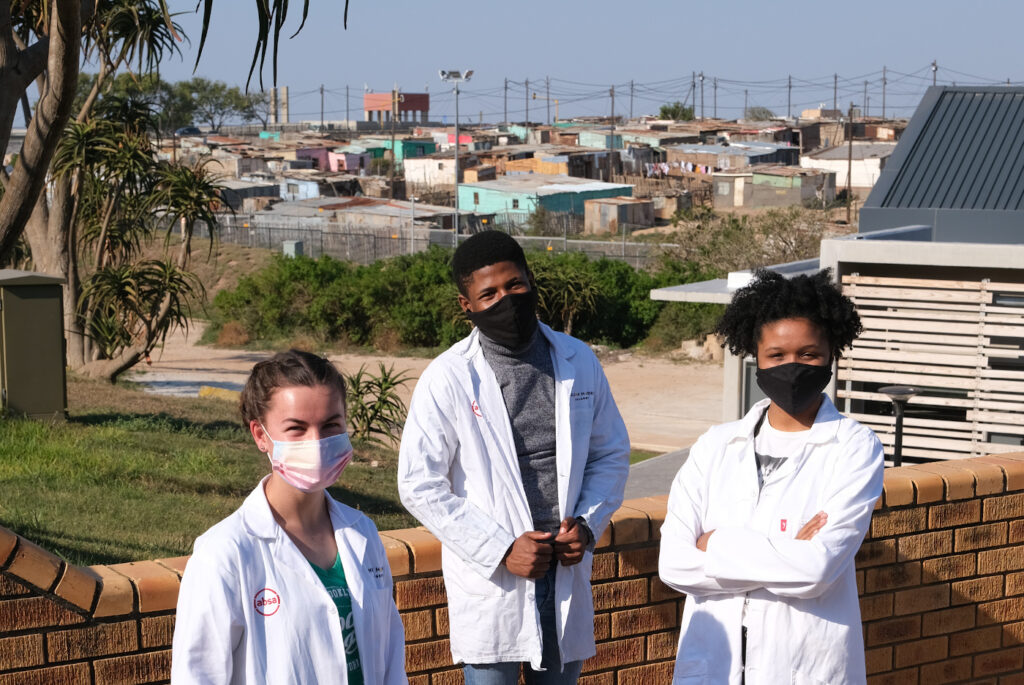 Nelson Mandela University Medical School students on the Missionvale Campus. Photo: Leonette Bower
Nelson Mandela University Medical School students on the Missionvale Campus. Photo: Leonette Bower
You can expect sophisticated facilities, up-to-date technology, a small but diverse class, helpful staff and top-notch training, said the current crop of doctors-in-training.
“The experience that you will get is basically world class: there are doctors from all over the world in the hospitals that you’re going to be training in,” said 2021 class rep Qasim Osman, 18, who matriculated in Polokwane, Limpopo, in 2020.
Like many medical school hopefuls, Osman applied at several South African universities as demand generally far outstrips supply for placement.
‘Amazing labs’
“When I looked into the programme here the small class size and new facilities were appealing — we have amazing labs, and this is also a good city to live and study in,” he said.
There were 5 652 applications for 2022 and 80 students accepted, and this is expected to rise to 100 in 2023. Most of the 2021 Mandela Uni MBChB class matriculated in 2020 and were drawn from schools in Quintiles 1-3.
“I was so scared and frustrated that I might not be able to go to study in 2021. When I got the call, I was so happy,” said Botshabelo matriculant Tshepo Mpelo, 20, who had feared that the impact of Covid-19 would delay academic admission.
Gqeberha matriculant Anita Ellary, 18, is loving being a pioneer of Mandela Uni’s new medical school.
“It’s amazing! There was obviously a lot of anxiety hearing that so many applicants were vying for so few spots, but my acceptance affirmed that the hard work I put in at school paid off,” she said.
“There was a lot of newness and uncharted waters. However, all the lecturers have been extremely approachable and willing to help.”
Classmate Matthew Harrison agreed, saying he was enjoying the “enthusiasm and warmth of all the staff and lecturers”. He also said he had been learning “just how important empathy and being a good communicator is in healthcare”.
“It’s been fantastic overall, and a lot of fun, but oftentimes daunting with all the responsibilities placed on you, especially academic,” said the 19-year-old from Kimberley in the Northern Cape
‘The chance I’ve been waiting for’
A few students could not fulfil their dream of becoming a doctor immediately after school. Potsiso Pako, 27, for example, studied pharmacy before applying at Mandela Uni in 2020.
“It’s been a long journey to finally do medicine now and I am overwhelmed with emotions to know that I actually made it from more than 5 500 applications,” the student from Mpumalanga said.
“This is the chance I’ve been waiting for, for a long time. It’s been hard to transition to being a full-time first year student again, but our campus has good facilities and great lecture halls, and it’s a good learning environment.
“I’ve made new friends, and having physical interactions with our lecturers has helped me a lot as they’ve been supportive.”
KwaZulu-Natal born Yasteel Nandlal, 19, started a BPharm at Mandela Uni in 2020 before switching to medicine in 2021.
“I am extremely grateful and consider myself very lucky that I was chosen to be part of this medical school,” he said.
‘So much support’
Others commented on the extensive academic programme.
“The workload is quite heavy but everything is interesting to learn. Our lecturers are approachable and want us to succeed; they’re dedicated to helping us as much as possible and communicate this clearly,” Nandlal said.
“There’s so much support, we have great systems to facilitate online learning and it’s very special to be part of the first cohort.”
Many said they were challenged academically by the rigorously accredited medical school curriculum.
Osman agreed that the course was intense: “You have to study every day if you want to get through everything — doctors need to know a lot!”
Smaller classes did help, however, said Ellary, and also contributed to “close-knit bonds, both as medical students and as friends”.
“At the beginning it was very challenging because all I knew was medicine is the most challenging degree and for me to survive, I need to work very hard,” said Zamokuhle Ngema.
“However, they make failing impossible because the resources at labs and in lecture rooms are amazing and make work very easy.”
‘I want to make a difference’
The 20-year-old from KwaZulu-Natal said the most important lesson was to take care of her own mental health. “I learnt that mental health and giving myself a break is important as studying — without that, I have no purpose in what I do, and what I will be in future as a doctor,” she said.
Megan Venter, 19, of Gqeberha, said she enjoyed the diversity of her class, making new friends, and also valued the chance to meet members of the community around the campus.
“I really learnt that I want to make a difference in people’s lives. My heart felt so warm after our visit to Missionvale Care Centre, and now I have a strong feeling that I’m just one step away from my lifetime goal of being a doctor,” Venter said. — Gillian McAinsh
—————————————————————————————————————————————————————————————
New Medical School set to change the landscape of healthcare
When the first 50 students set foot here in March 2021, it fulfilled a dream not only for the University but also for the area and communities around the campus, Nelson Mandela Bay Metro, the Eastern Cape province and our country.
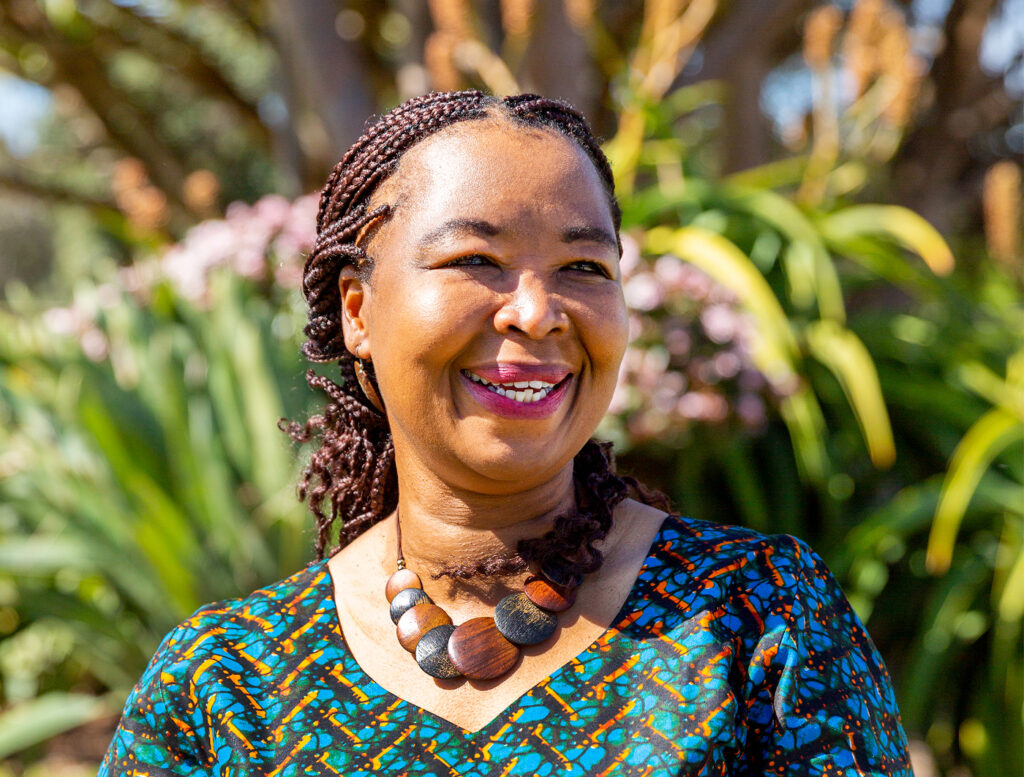 Professor Sibongile Muthwa, Vice-Chancellor of Nelson Mandela University
Professor Sibongile Muthwa, Vice-Chancellor of Nelson Mandela University
Our Medical School is intentionally being anchored on our Missionvale Campus in Gqeberha to contribute to urban renewal and regeneration for the benefit of our surrounding communities and the city. We are actively pursuing partnerships with local government, business, educational institutions, and public and private health service providers to promote access to comprehensive health services as part of an integrated health and education innovation precinct.
Four pillars of medicine
Our Medical School programme is unique in South Africa as its comprehensive primary healthcare approach focuses on the four pillars of medicine: disease prevention, health promotion, treatment and rehabilitative medicine.
Our aim is to develop and produce socially conscious medical doctors who can compete globally but who also have a deep passion to change the lives of poor communities.
Through Vision 2030, Nelson Mandela University reaffirms its commitment to change the world through humanising educational opportunities, innovative and transdisciplinary research and transformative engagement. In doing so we are confident that, while the human and capital investment for the new Medical School is significant, the public health education and research returns will be much greater, as it will help to improve health outcomes for our local communities, region and nation.
Catalyst for change
Over time our new Medical School will contribute to the development and enhancement of the provision of medical services especially in the underserviced areas, as well as the production of medical professionals greatly needed in our country to serve especially the least serviced regions such as the Eastern Cape, rural areas and townships.
These areas are also in desperate need of renewal and development, and our medical school, located by design in a township, will catalyse development in the area and in the metro.
It is equally important to understand that tackling the intersectional challenges of poverty and health starts with a recognition that treating patients medically needs to be accompanied by integrated approaches to healthcare that address the underlying social determinants of health, such as access to decent housing, education and social services.
Cutting edge technology
As befits a modern and internationally competitive Medical School, this facility includes state-of-the-art lecture venues, skills training laboratories, and the latest technologies, equipment and WiFi connectivity to ensure that we offer a world-class medical education.
The digital and ICT infrastructure will certainly enable and enhance learning and teaching in these times when universities are compelled to adopt hybrid modes of delivering education. This will further facilitate connectivity with neighbouring hospitals, clinics, and other educational institutions, making it easier to learn and work collaboratively beyond geographic divides.
We look forward to collaborating with all our partners, within and beyond the Mandela University, in producing fit-for-purpose, service-oriented and civic-minded medical professionals, committed to making a difference in the lives of the disadvantaged.
We believe that the best approach to medical education and healthcare service delivery is one that harnesses the wisdom and agency of our communities to advance preventive approaches.
We thank everybody in the University community — our various faculties, departments, staff and students, and beyond — the Ministry and Departments of Higher Education, Science and Innovation, the Ministry and Department of Health, the Premier, MEC for Health, and Eastern Cape Province, the Mayor and Mandela Bay local government, the Health Regulators and Profession, our Alumni and donors, all of whom have helped to bring our dream to life. It is a privilege to be part of a team whose commitment is both inspirational and humbling. — Professor Sibongile Muthwa, Vice-Chancellor of Nelson Mandela University
—————————————————————————————————————————————————————————————
Our pledge to the future
We are living at a time when humans have pushed the earth’s biophysical, ecological and life-giving support systems towards a critical inflexion or tipping point. The quality of human health and welfare is deeply ensnared in the confluence of climate change, ecological stress, biodiversity loss and a growing “metabolic rift” between our way of life and the ability of the earth to sustain its growth.
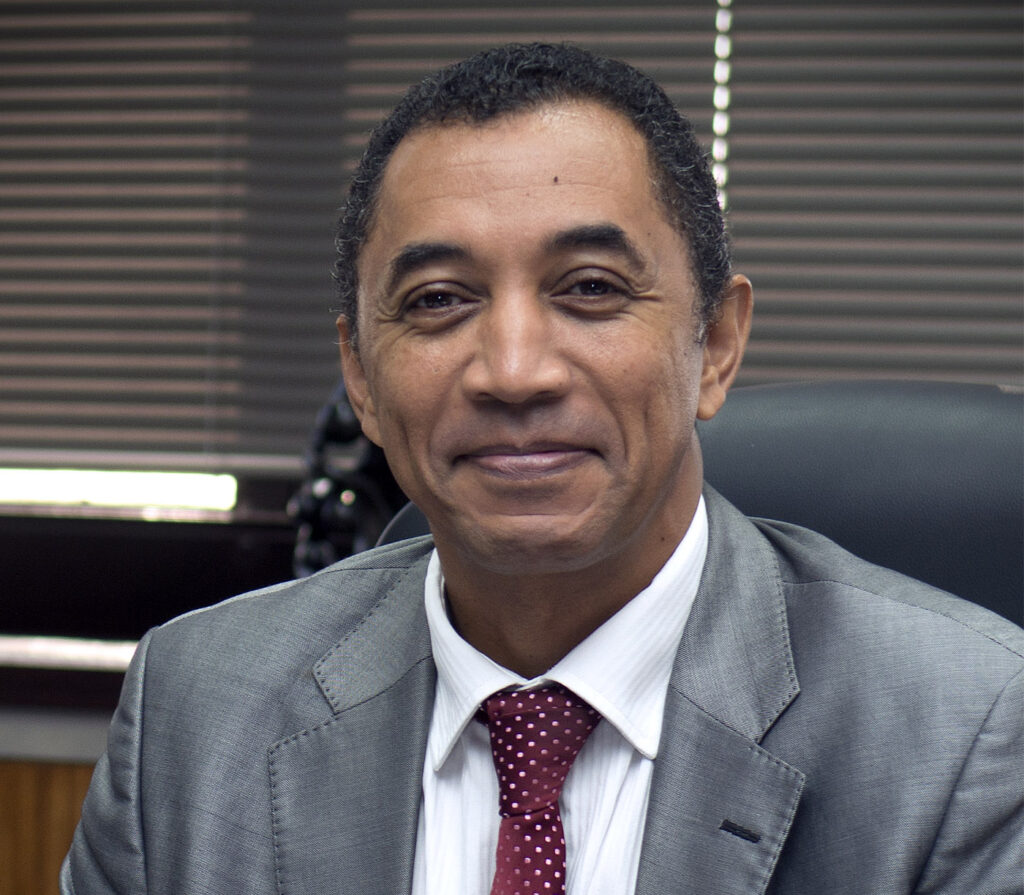 Professor Derrick Swartz, former Vice-Chancellor of Nelson Mandela University
Professor Derrick Swartz, former Vice-Chancellor of Nelson Mandela University
Within the context of these deep structural pressures, and also intimately intertwined with its dynamics, the world is currently also experiencing a raging global health pandemic and a deepening crisis of social inequality.
The Covid-19 pandemic has left a trail of destruction across the globe — more than 4.5-million deaths so far, with livelihoods destroyed and major disruptions in virtually every aspect of human life. But the burden of its costs is disproportionately carried by the poor and the world is already too connected for anyone to be safe if others are not.
We do not know what a post-Covid-19 world will look like, but it is likely that future historians will look back at the sad but humbling irony of this period — when a microscopic virus, barely 50-140nm in diameter, not only brought the entire human planet to a standstill, but also forced us to ask hard questions about a new future.
Social inequality is one of humanity’s most remarkable and enduring legacies, but the late President Nelson Mandela once said: “Poverty is not an accident. Like slavery and apartheid, it can be removed by the actions of human beings.”
The launching of South Africa’s 10th Medical School at Nelson Mandela University comes at a time when humanity requires fresh thinking, new ideas and radical innovations to decisively break from the deadening hand of our collective past. We place ourselves at the service of radical change. as it is our sincere belief that such transformation can only be achieved in the context of a sustainable, inclusive and equal society.
Internationally, the ideal of inclusive and equitable health for all is enshrined in the UN’s 2030 Agenda for Sustainable Development (2015) and Sustainable Development Goals (SDGs).
Government policy in South Africa is firmly committed to the ideal of creating an inclusive public healthcare system and the National Health Insurance (NHI) scheme and the District Development Model (DDM) are a key part of this. We are firmly committed to enabling the realisation of these two cornerstones of a democratic healthcare system through our programmes.
We pledge ourselves to the service of this mission. Our goal is to provide quality medical and healthcare training that speaks to multiple challenges if we are to realise an inclusive, equitable and participatory universal healthcare system.
Pedagogically, our approach is the training of future doctors as part of collaborative teams with other healthcare professionals and drawing on trans-disciplinary insights. Key to this is the use of indigenous knowledge systems working with frontier modern science to promote a holistic philosophy of healthcare and wellbeing. We see our diversity as a key source of strength to medical practice.
Beyond training of medical and healthcare workers, our university will also deploy its full range of research and innovation capabilities in the search for new diagnostic, therapeutic and vaccine technologies. These will be directed toward the fight against Covid-19 and future pandemics, legacy communicable diseases such as TB and HIV/AIDS, and climate-related health risks of the future.
The use of big data analytics, artificial intelligence (AI), machine and deep learning tools, together with Mandela University’s long standing capabilities in mobile, remote sensing and robotic technologies, will be crucial assets. Similarly, we hope to deploy these towards effective interventions in response to future climate-driven health threats.
With a strong focus on primary healthcare, our focus will be on strengthening the core pillars of community health. The medical school has a strong public health education component, working with local actors to build solidarity, partnerships and co-creation of solutions that places agency within the hands of communities.
As we stand at this crossroads, Nelson Mandela University pledges to harness all its knowledge and expertise to the historic task of creating an inclusive and sustainable tomorrow for all.
We do not have a clear map of the road ahead but, as we step into this future, we will draw inspiration from other words from Madiba: “Courage is not the absence of fear, but the triumph over it.” — Professor Derrick Swartz, former Vice-Chancellor of Nelson Mandela University
—————————————————————————————————————————————————————————————
Learning and teaching in medical education rises to pandemic challenges
Guided by Nelson Mandela University’s humanising, flexible mix of learning and teaching modes, the learning and teaching approach of the Medical School and Health Science Faculty has adapted with agility to address the challenges of the Covid-19 world.
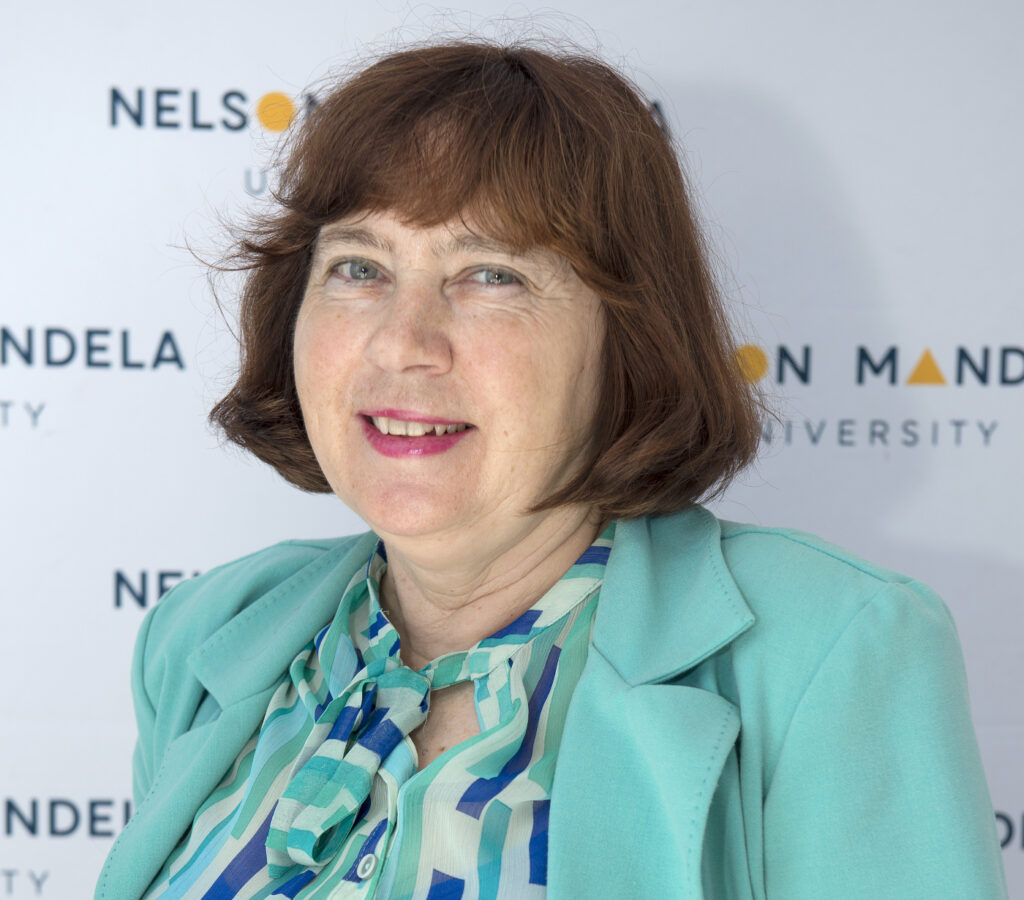 Professor Cheryl Foxcroft, Deputy Vice-Chancellor: Learning and Teaching at Nelson Mandela University
Professor Cheryl Foxcroft, Deputy Vice-Chancellor: Learning and Teaching at Nelson Mandela University
The coronavirus pandemic of 2020 and 2021 has led to changes in multiple facets of life and given us key learnings to take into 2022. It definitely has called for innovative thinking, which is leading the University into the broader realm of planning and transforming to align with our Vision 2030 strategic framework.
The Medical School has always aimed to make its learning relevant to the way the world is moving, and the use of technology and online resources, together with contact sessions, were already at the core of how our science content was delivered.
Perhaps unexpectedly, though, there has been a silver lining, as Covid-19 has strengthened capacity in staff and students to create quality online and mask-to-mask teaching. In the process it also has increased efficiency in mixed mode learning.
We planned to use online resources, with all students having their own laptop, but starting the medical programme in the midst of the pandemic made us accelerate the way digital literacy is taught to students, taking into account their capabilities.
The appointment of e-technologists and learning experience designers in the LT Collab and faculty has also enabled direct ICT, technology and design support to be offered to Medical School staff, and a specialist team working within the Medical School is assisting in building our six-year programme from the outset.
Digital literacy development activities will now actively include sessions on the relationship students have with technology and the impact of digital technology on their wellbeing. We are building our medical students’ digital footprint by teaching them how to engage professionally on social media while navigating the accuracy and relevance of online sources.
In addition, the students will build their own website from the first year, which will house a portfolio of their work over the six years of the MBChB programme. This aims to cultivate the skills required to ultimately prepare them towards building a paperless practice.
In Medical Communication sessions where group work was required, we found that at first-year level, working in small groups with a facilitator on MS Teams online was an effective alternative to in-person sessions, with many students reporting they felt more comfortable and less threatened when role-playing in the virtual world.
Students also adapted quickly to online group work and were able to have robust discussions on case studies about bioethics and other topics during MS Teams meetings. Lecturers also found it eliminated distractions from the session, allowing for better focus.
The acquisition of online resources such as ClinicalKey Student gave our first cohort equal access to ebooks of prescribed textbooks. This was supplemented by other online resources such as Primal Pictures and Complete Anatomy, which give students an opportunity to interact with anatomical models on their personal devices.
Gamification in class will see applications used to track score-boards, create competition and enhance team work, in the process driving engagement while collecting student feedback in real time.
Assessments during the year were online, which gave the academics an opportunity to scientifically analyse student performance and the quality of questions asked. This enabled us to refine assessments to further promote learning. The approach has been welcomed by students, lecturers and external examiners alike.
Mask-to-mask and online
In person mask-to-mask sessions remain vitally important, in areas such as community-based visits, where students met and interacted with households in the surrounding under-resourced areas. They also visited health clinics and NGOs dedicated to providing quality holistic medical care.
In 2021 this gave them an opportunity to put theory into context and experience first-hand the need for primary healthcare in South Africa. The students reported that this was most valuable, reinforcing their professional identities as future doctors who make a difference.
Learning and teaching in the Covid-19 era
Providing access for success to our students means making a range of services and facilities available, irrespective of whether they are in a physical or virtual classroom.
Unlike in other years, students across South Africa who started in 2021 did not receive a conventional orientation. Universities faced uncertainty about NSFAS funding and could only notify students about placement later than was optimal. However, we learnt the need for orientation that focused on connecting the student to their peers and lecturers, as well as digital platforms, and this will be an important focus for our 2022 orientation programme.
Support for student learning and wellness is embedded in a variety of platforms at Mandela University. In addition to digital, support in academic as well as bio-psycho-social areas remains a key feature for the medical programme, hence our appointment of a dedicated student success coach to help students transition to a successful tertiary education.
Thankfully, the Medical School is not a new entity on its own but is part of a strong Faculty of Health Sciences, which has helped to smooth the path. The Faculty held a successful online Interprofessional Education (IPE) event, in which different departments participated. Groups of students were given clinical case studies and discussed how their profession contributes to the care of these patients.
Our medical students will participate in these types of events as their studies progress, and Medical School staff are integral to the development of the case studies. The Faculty also took part in an international IPE event, namely Afri-VIPE.
Pandemic learning
There are other complex realities to learning and teaching during a pandemic. It has led to lecturers becoming increasingly flexible and creative, adjusting texts and activities to ensure relevance to the Covid-19 environment and for the devices students use.
Although much of the theoretical work in the new medical curriculum is covered online, it is augmented with virtual lectures and flipped-class discussions.
The mixed mode approach to teaching has allowed our students to be at the centre of their own learning, and lecturers are more of a guide in learning instead of being the sole source of information and knowledge.
It’s about finding the balance: keeping our students and staff safe during Covid-19 while ensuring that we meet the highest possible standards of learning, teaching and assessment.
—————————————————————————————————————————————————————————————
The Faculty of Health Sciences’ vision for its new Medical School
The new Dean of the Faculty of Health Sciences has a collaborative and interdisciplinary vision for the Medical School, the 12th and latest department in this flourishing faculty at Nelson Mandela University.
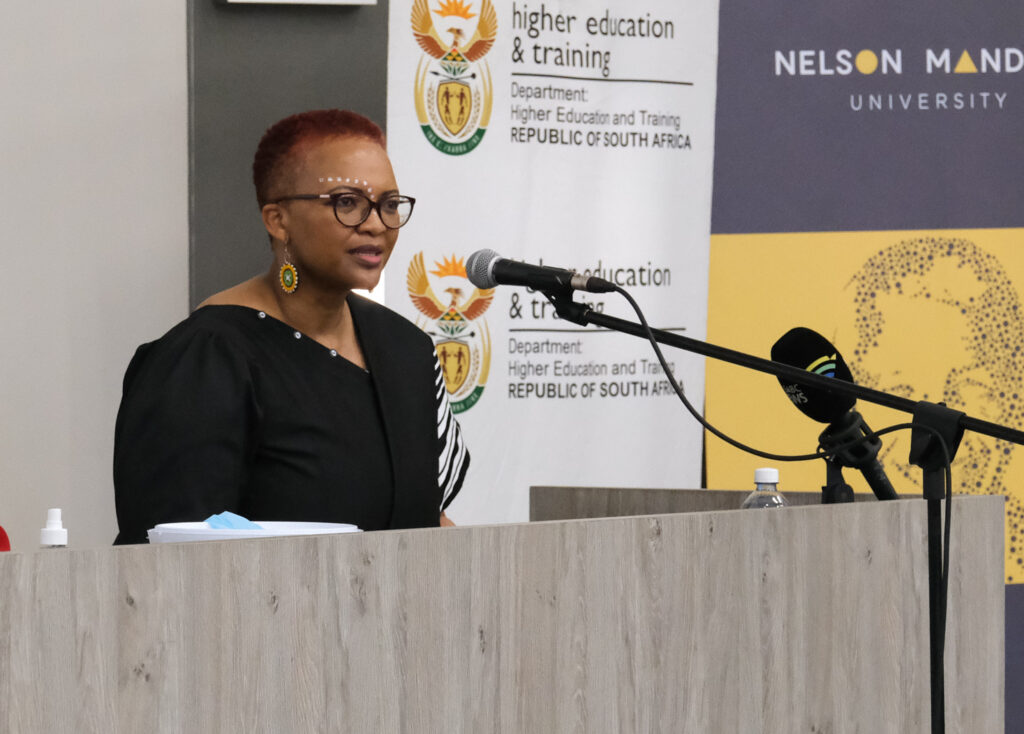 Professor Zukiswa Zingela, Dean of the Faculty of Health Sciences at Nelson Mandela University
Professor Zukiswa Zingela, Dean of the Faculty of Health Sciences at Nelson Mandela University
Professor Zukiswa Zingela — a psychiatrist whose most recent positions were Associate Professor and Head of Department (Chair) of Psychiatry and Behavioural Sciences at Walter Sisulu University and Clinical Head at the Nelson Mandela Academic Hospital in Mthatha — joined the University in August 2021.
“We’ve got a medical programme that’s really new and this is a chance to do things differently without compromising on standards and quality,” said Professor Zingela.
“This we will do by equipping students with practical skills that are based on a sound theoretical framework to produce innovative and affordable interventions that meet the community’s health needs.
“The focus will be on imparting essential skills such as health promotion and prevention while strengthening expertise in academic medicine through transdisciplinary learning and research.”
Nelson Mandela University’s offering therefore covers many areas in its quest to develop well-rounded medical professionals, and student input has been included.
“We have had a request from the medical students themselves, who have indicated that they would like the chance to be exposed to a general practitioners’ environment. Some of our students may end up becoming managers in the public or private sector, or general practitioners. We also want to strengthen research skills, because some of our medical students will become researchers.”
Caring for the carers
Professor Zingela has been recognised for her work in bolstering the mental health of Covid-19 frontline workers and expanding the Eastern Cape’s team of homegrown public sector psychiatrists. She highlighted the catastrophic intersection of Covid-19, tuberculosis (TB) and HIV/AIDS on physical as well as mental health.
“We’ve been through a very difficult two years, which has placed a strain on everybody’s mental health,” Professor Zingela said. “This is very close to my heart as a psychiatrist, as in a lot of medical training programmes there isn’t a focus on how medical students should take care of themselves and their own mental health.
“Nelson Mandela University is bringing all of these aspects in to make sure that we’ve covered the different areas. The idea is to equip our medical students to become self-sufficient professionals who can work in any environment, with a variety of skills that they can lean on wherever they find themselves. We want to produce medical students who are ready to serve, but who do not end up self-sacrificing for the sake of servitude.”
The University’s inter-professional education and collaborative practice (IPECP) model has implicit partnerships within and across disciplines relevant to holistic primary healthcare, and the medical students will work alongside their peers in other disciplines.
Professor Zingela has a message for prospective students: “Our role is not only to teach you the theory and practice of medicine, it is to guide you beyond that, to look at health problems and challenges with new eyes.
“You will be able to focus not only on healing the sick and humanely caring for the dying, but also on finding innovative solutions to immediate health challenges so that we can tackle our most pressing health problems. Our way is the preventative way, the preemptive way, and the ethical way.”
Building the blueprint
While working at Dora Nginza Hospital in Zwide several years ago, Professor Zingela — who grew up in Zwide — was invited to become part of a team developing a blueprint for a second medical faculty in the Eastern Cape.
“We studied the viability, how it would happen, and the direction it would take,” she said, noting the significant financial investment needed, along with the interaction with other healthcare programmes already thriving within the University.
At that stage however, she did not know that in 2021 she would be in Gqeberha, with the blueprint unfolding in front of her. It has been bittersweet.
“It’s wonderful to see everything turned into reality in ways that one would not have imagined. Our first class this year was very enthusiastic, committed and ready to learn.
“The sad part is we lost the first Dean, Professor Lungile Pepeta, who saw this literally come to fruition. We owe it to ourselves and to all those whom we have lost to the pandemic to join hands and propel the Faculty to even greater heights.”
Professor Zingela invited guests at the launch, whether in person or online, to join in creating a “Friends of the Mandela University Medical School” platform, to share ideas on how to promote the wellbeing and interests of the medical school and the communities it will serve.
“Let us change the world together!”
— Gillian McAinsh
—————————————————————————————————————————————————————————————
Dr Blade Nzimande congratulates University on its latest facility
South Africa’s Minister of Higher Education, Science and Innovation, Dr Blade Nzimande, has given the new Medical School — and the University as an institution — his enthusiastic support for nearly a decade.
Speaking at the official launch in November, he noted that planning for the Nelson Mandela University Medical School dated back to 2013, when a business plan was developed.
 Dr Blade Nzimande, Minister of Higher Education, Science and Innovation, delivers an address at the launch of the new Medical School
Dr Blade Nzimande, Minister of Higher Education, Science and Innovation, delivers an address at the launch of the new Medical School
“From 2014, my Department of Higher Education and Training supported Nelson Mandela University in establishing a School of Medicine and Public Health with additional relevant programmes in medicine and public health, as part of the University’s 10-year Master Plan,” said Dr Nzimande.
The National Skills Fund contributed R73-million to assist the University in this drive.
“As a country and a people we should be proud that we are launching this excellent teaching and learning facility dedicated to the training of future health professionals,” said Dr Nzimande.
“The Nelson Mandela University Medical School aims to position health education to be more responsive to our country’s health needs, by widening access to healthcare programmes. The school will add to the health professionals that our country needs to improve our health system as a country.”
The Minister commended the University for its continued role in the Eastern Cape, through “its excellent teaching and learning, research and community engagement programmes”.
“In addition to these benefits, the establishment of the School promotes local economic development within the Nelson Mandela Bay Metro, South Africa’s fifth largest metro,” he said.
Missionvale development and education precinct
Dr Nzimande praised the location of the School for offering excellent opportunities to fulfil its vision as a medical school and the broader health sciences faculty.
“What is more pleasing is that the Missionvale location is also within the socioeconomic development precinct and education hub.”
Drawing on the vision of the White Paper for Post-School Education and Training, as outlined in the National Plan for PSET, Dr Nzimande said he was passionate about, and committed to, the idea of developing education and innovation precincts.
“The Missionvale campus location of the Medical School offers opportunities for an embedded health sciences programme, strongly responsive to community needs, and also offers excellent opportunities for learning for medical school students.”
Support offered by DHET
Dr Nzimande outlined how the Department of Higher Education and Training, through the Clinical Training Grant, has for the past 13 years been supporting the clinical training of health science professionals at the University such as nursing, pharmacy, dietetics, emergency medical care, radiography, biokinetics and biomedical technology.
“The provision of these funds will now be extended to the medical programme to cover costs for adequate clinical training staff, equipment and related operational costs so that the University continues to train quality graduates.
“In the current financial year, we allocated a total amount of R644.7-million, earmarked for the clinical training of health professionals in the sector and from this allocation Nelson Mandela University was allocated R19-million.”
The Minister highlighted how the country’s public hospitals were overstretched due to the scarcity of health professionals. However, he said the environment for teaching and training of health professionals was complex and relied on multiple partnerships.
“Planning the expansion of health sciences education and the development of health professionals and para-professionals through higher education and the college sector requires close collaboration between the national Departments of Health, the Higher Education and Training and the Department of Science and Innovation.
“This will ensure that priority health skills are addressed, and the output of appropriate health professionals are realised to meet our country’s health and education needs.”
The Department of Higher Education and Training has contributed just over R100-million in the past three years to support the clinical training of South African students who had travelled to Cuba to study. He commended the University for its commitment to absorbing medical students returning from their studies there, saying “we are thankful for this commitment, as the Cuban cohort is made up of students from disadvantaged communities”.
“I congratulate the university community on the hard work they have put in to ensure the successful launch of its Medical School. Let me also congratulate Professor Sibongile Muthwa for her role and sterling leadership in driving this project. I must also thank Professor Derrick Swartz, under whose stewardship this project was started.”
“May our 10th medical school grow from strength to strength. Enkosi. Siyavuyisana nani!”
— Gillian McAinsh
—————————————————————————————————————————————————————————————
New school a ‘responsive social justice call to action’
The Chancellor and Chair of Council of Nelson Mandela University are united in their hopes that the first graduates from the Medical School will bring healing with a heart to those in our society who need it most.
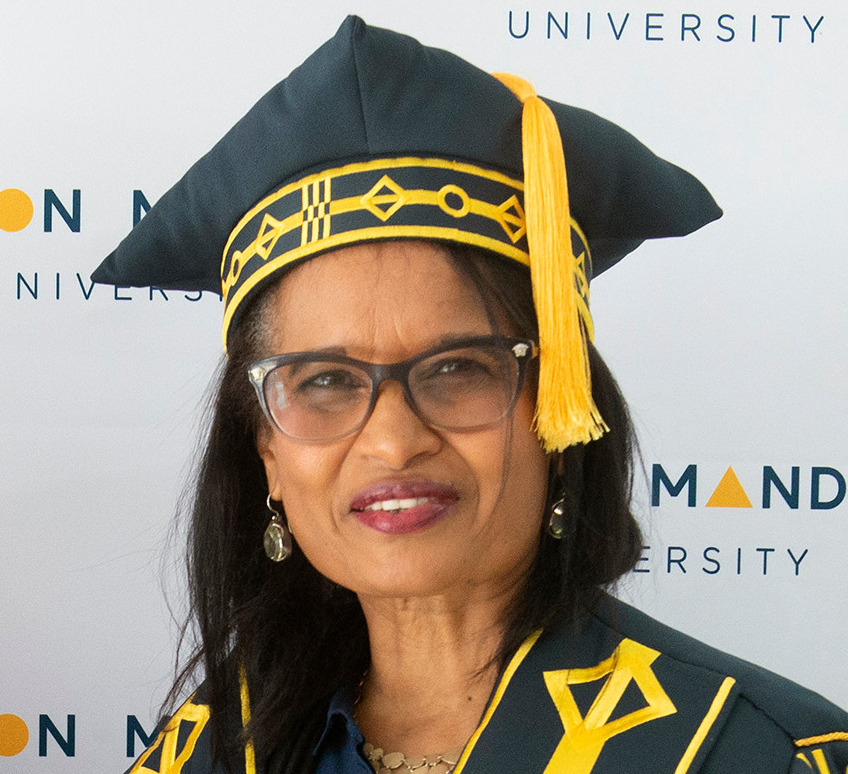 Dr Geraldine Fraser-Moleketi, Chancellor of Nelson Mandela University
Dr Geraldine Fraser-Moleketi, Chancellor of Nelson Mandela University
Dr Geraldine Fraser-Moleketi, Chancellor of the University and a former minister in President Nelson Mandela’s cabinet, cited the affirmative nature of South Africa’s Bill of Rights.
“Our University values all sections of the Bill of Rights … and while our primary focus rests with Section 29, Education, the establishment of the Medical School opens the door for us to focus on Section 27, Healthcare, and Section 11, Life.”
Dr Fraser-Moleketi described the positioning of the Medical School and Health Sciences disciplines on the Missionvale Campus as a “responsive social justice call to action”.
“The United Nations Secretary General, António Guterres, says that Covid-19 has provided us with an x-ray showing up the fractures of the world, with deepening inequalities. The inequalities require us to be bold and craft workable solutions in the service of society.
“My wish for this Medical School and indeed the University is to build a world that is free from stigma, violence and stereotypes, a future that is sustainable and peaceful.
“Establishing the country’s 10th Medical School is a stake in the ground.”
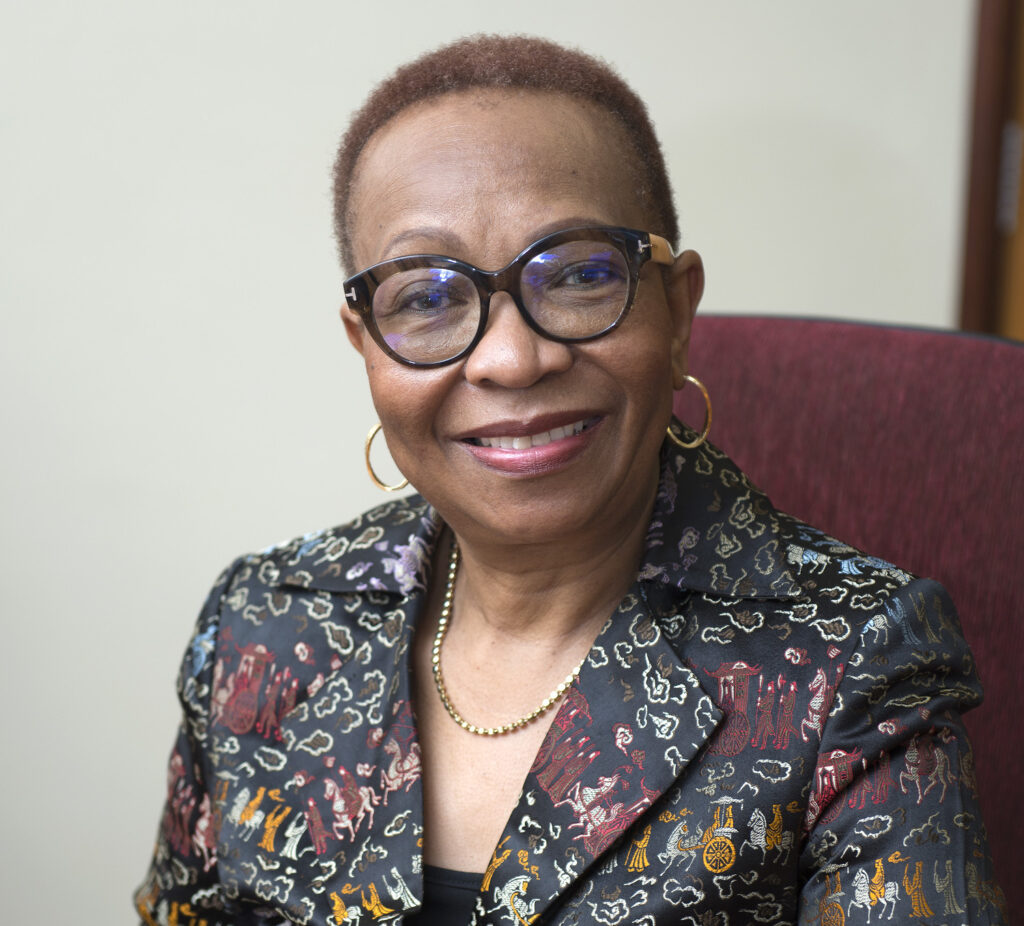 Ambassador Nozipho January-Bardill, Chair of Council at Nelson Mandela University
Ambassador Nozipho January-Bardill, Chair of Council at Nelson Mandela University
Ambassador Nozipho January-Bardill, Chair of Council at Nelson Mandela University, said the launch “celebrates our collective effort and is a clear demonstration of what unity of purpose can achieve”.
“The burdens of Covid-19 have disproportionately impacted the poor — those who live in areas like Missionvale — again highlighting the critical responsibilities we have as universities, businesses, government departments and healthcare institutions.”
She described the Medical School buildings as “so much more than bricks and mortar”, and its staff and students as “so much more than individuals with top qualifications and those seeking to attain their MBChB degrees”.
“Today is about hope. It’s about the hope that this medical school offers to our institution, to our students, to Nelson Mandela Bay, the Eastern Cape and the country. And even to our continent. But more especially, it’s about the hope that it brings to the people who need good healthcare most.
“These will be medical graduates with servant hearts, those who are capable of practising anywhere in the world, but who chose to serve where healthcare is needed most, in townships like Missionvale and far-flung rural areas across our country.
“We do so mindful of Nelson Mandela when he said: ‘health cannot be a question of income; it is a fundamental human right’. We pledge to live by example, offer hope, and change the world.” — Gillian McAinsh
—————————————————————————————————————————————————————————————
Healthy partnerships that work in service of society
In line with its ethos of working together for the greater good, Nelson Mandela University partners with numerous stakeholders to be of service to society.
In the Medical School this is expressed through external partnerships with the community, other academic institutions, professional bodies and state entities on regional, provincial and national tiers. Internally, the school collaborates using the University’s interprofessional education collaborative practice model.
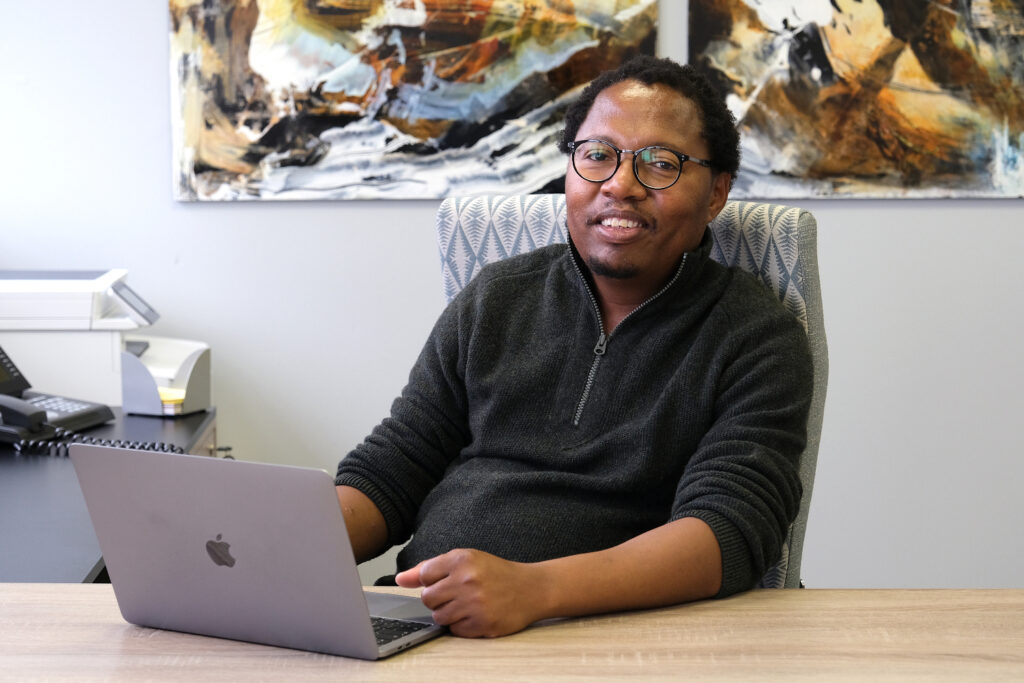 Professor Fikile Nomvete, Medical School Director at Nelson Mandela University, believes in collaboration between the community and the University
Professor Fikile Nomvete, Medical School Director at Nelson Mandela University, believes in collaboration between the community and the University
The Faculty of Health Sciences has been developing partnerships with the departments of Health and Higher Education and Training to facilitate the new medical programme.
At the launch in 2021, Minister of Health Joe Phaahla highlighted the importance of “strong collaboration with stakeholders at all levels of society”, and noted that the new school was a major boost for public health and the local economy.
Eastern Cape MEC for Health Nomakhosazana Meth said she was confident the programme would propel Nelson Mandela University to great heights as “one of the leading universities not only in the Eastern Cape but in the country”.
Referring to the placement of students at regional hospitals, she said: “Having students rotating through our facilities in their clinical years of training is part of our long-standing commitment to partner with institutions of higher learning in the province. Partnerships and collaborations, especially in the fields of science and innovation, are fundamental in ensuring that the Eastern Cape reaches its full potential.”
Health Sciences Executive Dean Professor Zukiswa Zingela outlined the role of external and internal stakeholders, noting that both were vital for the new Medical School to flourish.
“External stakeholders are, first of all, the community around Missionvale, and beyond that, the community of Nelson Mandela Bay. We will partner with them to afford opportunities to our students to learn,” she said.
“Once you have a medical school within a community you tend to improve the health services, providing more opportunities for access. So, as much as we would require help from the community to teach our students, in addition, the community also benefits.
“A second external area is the medical fraternity, and the other health sciences professionals outside Mandela University, such as the local hospitals and clinics.”
The provincial Department of Health manages the hospitals and clinics where Nelson Mandela University students will be deployed. They will train at Dora Nginza, Livingstone and PE Provincial hospitals and, as the programme develops, travel farther afield to Uitenhage Provincial Hospital in Kariega and Settlers Hospital in Makhanda.
Oversight and accreditation
Key partnerships also include regulatory oversight and academic accreditation via the Health Professions Council, South African Qualifications Authority and the Council for Higher Education.
“Beyond that we’ve also got sister medical schools that have a Faculty of Health Sciences, and the most important of these is Walter Sisulu University,” said Professor Zingela, who worked at WSU for six years before joining Mandela University in 2021.
“I can assure you I come with a very warm invitation for collaboration from the different heads of departments I’ve worked with. They have indicated that they are 100% behind us, as our success will also be their success.”
She has close ties to her successor as academic head of psychiatry at WSU and is hopeful that the collaboration will continue to flourish.
“There are also the formal agreements such as the memorandum of understanding and multilateral agreements which have been signed with WSU and the Department of Health to make sure we’ve set the boundaries of where we’re going to collaborate, how we’re going to share facilities and so on.”
Internal stakeholders
The University’s inter-professional education model also has implicit partnerships within and across disciplines relevant to its vision of holistic primary healthcare.
“Internal stakeholders are essential partners because they are linked to access to resources for the Medical School, and to the vision of working across disciplines to collaborate and achieve the goals we want to reach,” said Professor Zingela.
“Within the Faculty of Health, we are focused on making this a multidisciplinary initiative with input from different departments.
“In addition, we are looking across faculties, for example, with the Directorate of Learning and Teaching and the Learning and Teaching Collab helping to strengthen our pedagogy.”
Professor Zingela cited strategic priorities such as the ever-growing Ocean Sciences Campus: “Nelson Mandela University is very strong in Ocean Sciences, which can have a direct effect, because if we improve our chances of getting food sources from the oceans this also will have an effect on poverty and health outcomes.”
Regional and local government partnerships
The University also has implicit partnerships relevant to holistic primary healthcare. This was brought into focus in 2020 when University representatives became part of the provincial Coronavirus Command Council, an ongoing relationship.
On a local government level, the University has a good working relationship with the Nelson Mandela Bay Metro.
“The Municipality supports you and has a vested interest in your success and prosperity,” promised Executive Mayor Eugene Johnson at the launch in 2021. “I invite the management of the Medical School to contact my office immediately should you experience any problems with which we can help. My door will always be open to Nelson Mandela University.”
As an engaged institution, Mandela University has an ongoing partnership with ward councillors from Missionvale and its surrounds, and is setting up a community advisory board as recommended by the HPCSA.
As an entrepreneurial and innovative institution, Mandela University is harnessing the power of partnerships to come up with solutions that are novel and relevant to South Africa’s healthcare needs. — Gillian McAinsh
—————————————————————————————————————————————————————————————
Leaders share hopes for transformative impact of new school
Political leaders in the Eastern Cape have high hopes for the transformative potential of the new Medical School.
At the official launch in November 2021, they praised Nelson Mandela University for its people-centred approach, which aims to produce medical professionals with a passion to transform lives among those sectors of the population that need health services most.
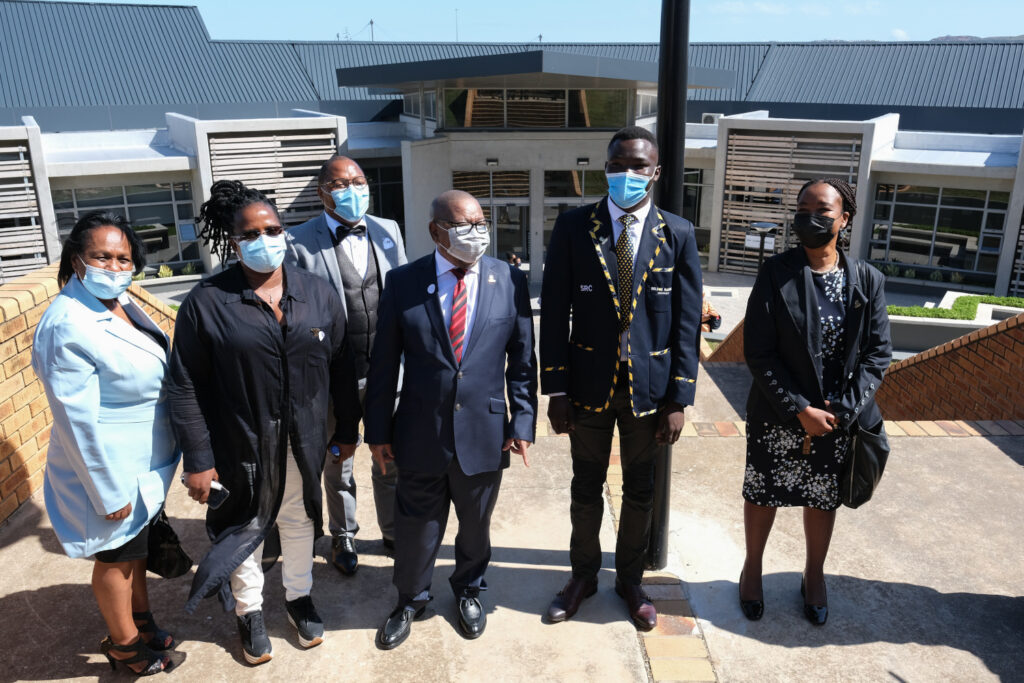 Nelson Mandela Bay Executive Mayor Eugene Johnson, left, was among the dignitaries who also included Higher Education, Science and Innovation Minister Dr Blade Nzimande, centre front, and Eastern Cape MEC for Health Nomakhosazana Meth, second from left
Nelson Mandela Bay Executive Mayor Eugene Johnson, left, was among the dignitaries who also included Higher Education, Science and Innovation Minister Dr Blade Nzimande, centre front, and Eastern Cape MEC for Health Nomakhosazana Meth, second from left
Eastern Cape Premier Oscar Mabuyane commended the “unwavering commitment” of those involved with developing the service-centred programme.
“We expect you to produce medics of exceptional quality who will be specialists in their fields,” Premier Mabuyane said. “But, more than that, we want you to produce caring doctors who will place the healing of people before profits.”
Nelson Mandela Bay Executive Mayor Eugene Johnson said the new school would greatly enhance service delivery to residents in need of medical care.
“They will be served in a culturally sensitive way by people who know local conditions and who can speak their language,” she said.
“It is right and fitting that the Medical School should be established right here in Missionvale, and I commend the University for this decision. You saw that our impoverished areas are massively underserved, and you took action and made this important decision.
“This Medical School will be of, and for, the ordinary people of our city and our province. But we must dream big; may this medical school be an inspiration and a beacon of light not only for the Eastern Cape, but also for the entire South Africa. — Gillian McAinsh
—————————————————————————————————————————————————————————————
The legacy of healthcare icon Professor Lungile Pepeta
When the story of Nelson Mandela University’s new Medical School is told, it cannot leave out the contribution of the late Professor Lungile Pepeta, former Executive Dean of the Faculty of Health Sciences.
Tragically, Covid-19 felled this trailblazer of community medical care in August 2020, in the midst of a crucial time — the establishment of the new Medical School.
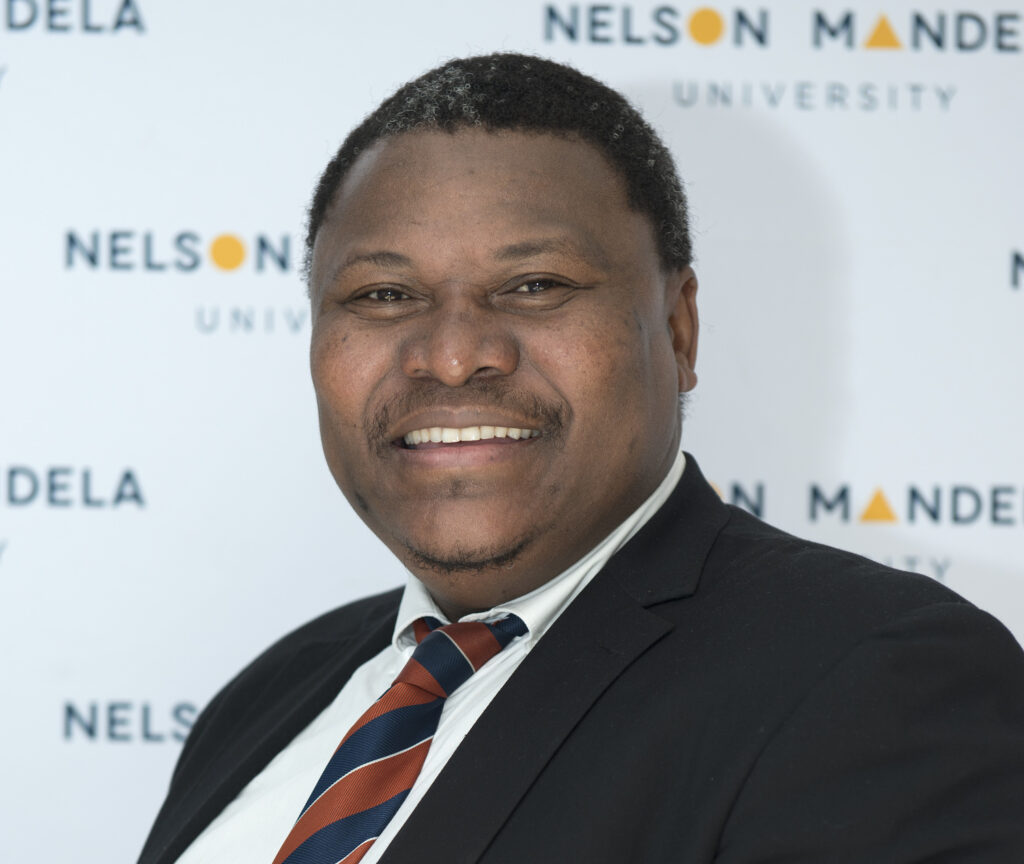 The late Professor Lungile Pepeta
The late Professor Lungile Pepeta
Minister for Higher Education, Science and Innovation Dr Blade Nzimande dedicated his remarks at the launch in November 2021 to the stalwart medical professional, saying he played a leading role in the implementation stages of the medical school.
“Professor Pepeta not only left a legacy here but also with the entire medical fraternity, especially here in the Eastern Cape,” said Dr Nzimande.
“In his honour, I am confident that Nelson Mandela University will continue to implement the vision for a medical school that serves the people of the Eastern Cape and our country with distinction.”
Nelson Mandela University Vice-Chancellor Professor Sibongile Muthwa also spoke glowingly of the late medical hero.
“Professor Pepeta was an embodiment of servant leadership. His unwavering commitment to finding sustainable solutions for the health sector makes his passing an immense loss, and his humility and heart for ordinary people will be sorely missed. His passing is not only a great loss to the University but also to the Nelson Mandela Bay Metro, Eastern Cape and country.”
Professor Pepeta joined the University on 1 January 2017. As a renowned paediatric cardiologist, he had extensive experience in working with key stakeholders in the health and higher education sector, provincially, nationally, in Africa and globally.
“Professor Pepeta was extremely passionate and committed to South Africa’s health sector, particularly in the Eastern Cape, where he was raised, studied and spent the bulk of his illustrious career,” said Professor Muthwa.
His commitment to public health was part of what made him the perfect fit for what Mandela University envisaged as a model for its Faculty of Health Sciences and new Medical School.
Double tragedy for Missionvale
Another icon of community-based healthcare also passed away over this period, with cancer taking Missionvale Care Centre founder and director Sister Ethel Normoyle in August 2021. Sister Ethel, a nursing sister and nun in the Catholic religious order of the Little Company of Mary (LCM), was a firm friend of Professor Pepeta and it was her vision that the University and the centre work together both now and into the future.
Missionvale Care Centre manager Linda van Oudheusden paid tribute to both leaders by citing the values they lived by and the words of the LCM founder Mary Potter, “If you would bring healing, bring love”.
“We were devastated when Professor Pepeta died; it was as if a giant oak had fallen. Every time he visited us, he was such a positive spirit, his enthusiasm was palpable.
“They both realised that healthcare is so broad, it’s not just about a diagnosis and for Sister Ethel the new Medical School was a beacon of hope.
“Professor Pepeta’s way with people and love for the community were a wonderful example of compassionate care and it is beyond comprehension how big his contribution was,” said Van Oudheusden.
Eastern Cape Premier Oscar Mabuyane also has warm memories of the late Professor Pepeta, and suggested naming a section of the Medical School after him.
“I’m certain that he’s beaming with that trademark smile of his today as we officially open this facility that will serve generations of South Africa and Africa’s children,” Premier Mabuyane said. — Gillian McAinsh
—————————————————————————————————————————————————————————————
Primary healthcare is paramount
Primary healthcare orientation lies at the heart of Nelson Mandela University’s new MBChB programme to train caring, competent, socially responsive and committed medical doctors.
This path has been chosen to help address the needs of South Africa: training doctors who are sensitised to the nation’s challenges of poverty, unemployment and inequality, and who at the same time have rigorous clinical skills that equip them to work anywhere on the continent, or in the world.
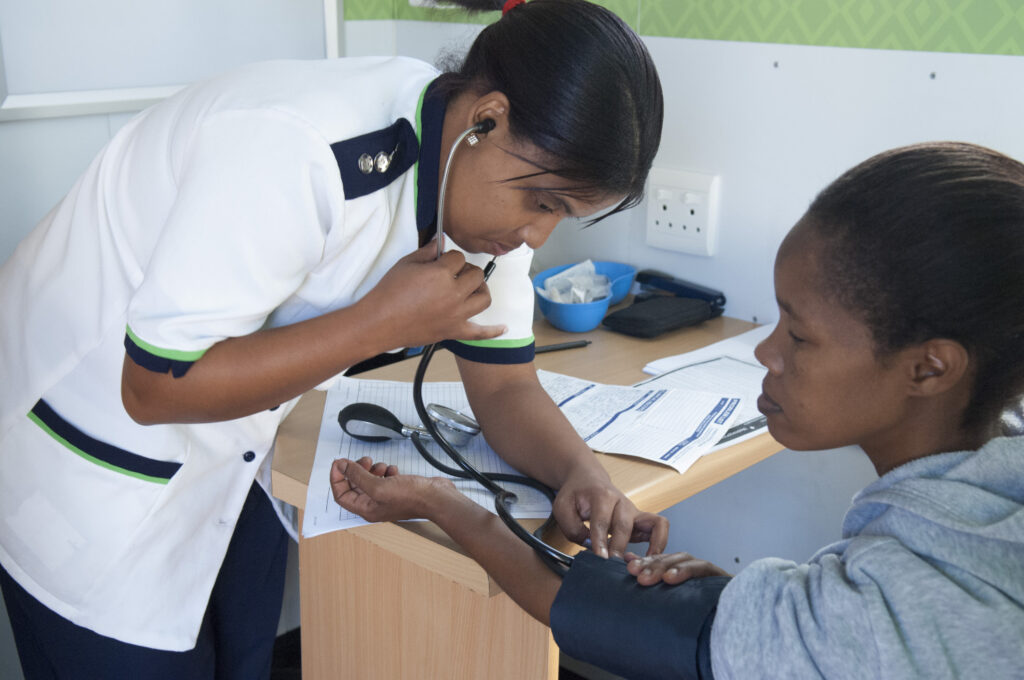 Health Sciences students work at Missionvale Care Centre as part of their training, which emphasises primary healthcare
Health Sciences students work at Missionvale Care Centre as part of their training, which emphasises primary healthcare
Minister of Health Dr Joe Phaahla congratulated Nelson Mandela University for its focus on primary healthcare.
“Medical doctors play an essential leadership role in achieving universal health coverage. But in many countries, like here in South Africa, their training is oriented towards curative high technology, super-specialisation in medicine and such,” said Dr Phaahla. “Achieving movement to universal health coverage will require some form of realignment of the medical curriculum towards a stronger focus on primary healthcare.”
Medical School Director Professor Fikile Nomvete outlined how the school’s vision is to train general medical practitioners who also have a deep understanding of primary healthcare. He hopes this will become so deeply ingrained in the students that when they graduate “they’ll always remember that the greater population of South Africa requires primary [health]care”.
“They will understand what it means to be working in an African context, and know how to offer a service to that population. This means we want to send our medical graduates out into the world knowing how to practise primary healthcare in holistic, culturally sensitive and comprehensive ways.”
International studies have shown this is the most inclusive, just, economical and efficient approach to enhance physical and mental health, as well as social wellbeing. The wide-ranging impact of investment in this has been growing around the world, particularly in times of crisis such as the Covid-19 pandemic.
“Add this to South Africa’s severe shortage of doctors and healthcare workers in general nationally, which over the pandemic has seen public and private health systems stretched almost to breaking point, and you can see the need for a medical school with this orientation,” said Professor Nomvete.
It is a holistic approach and, internationally, the ideal of inclusive and equitable health for all is enshrined in the UN’s 2030 Agenda for Sustainable Development and Sustainable Development Goals.
Health Sciences Deputy Dean Professor Dalena van Rooyen outlined how the University’s interprofessional education and collaborative practice (IPECP) model builds bridges between disciplines relevant to primary healthcare.
“As a Faculty of Health Sciences, it’s vital to understand health disparities in underserved communities, accounting for large parts of our country and continent, and how to address these. This is a major part of our mission to co-create with our partners a socially just, healthy and sustainable world.
“In alignment with the National Development Plan for 2030, there will be a focus on primary and preventative healthcare, with IPECP as an essential building block.”
The University’s Faculty of Health Sciences has a very strong IPECP approach, offering qualifications in 11 health professions. These include nursing, emergency medical care, radiography, biokinetics, human movement science, dietetics, pharmacy, environmental health, medical laboratory services, psychology and social development. Medicine is now the 12th.
“The golden strand is that of a full interprofessional team who will hold hands with others in changing lives and making healthcare accessible and visible to the under-resourced and under-served,” said Professor Van Rooyen.
Aligning with the principle of ubuntu
Professor Nomvete emphasised that this primary healthcare orientation involves co-creation, as it places agency within the hands of the community.
“We see individual wellbeing as intimately connected with community health — the principle of South Africa’s much lauded ubuntu, where the concept of community is one of the basic building blocks of a thriving society. However, this ideal can only be achieved in the context of social equality in wider society.”
Primary healthcare also has a strong focus on reaching out and educating to prevent disease, and the MBChB programme takes the students out to the community from their first year.
Sharing knowledge with patients can be an effective tool to help prevent disease, maintain good health, and provide ongoing support for chronic conditions. — Gillian McAinsh
—————————————————————————————————————————————————————————————
Health Sciences’ ‘dream team’ sees project through
When Nelson Mandela University Vice-Chancellor Professor Sibongile Muthwa welcomed 50 medical students at a small, internal oath-taking ceremony in May 2021, it was the culmination of a dream dating back to 1946.
The idea for a medical school in Gqeberha (then Port Elizabeth) arose when Rhodes University suggested the possibility of a satellite campus in the city, with faculties of commerce, engineering and medicine.
 Medical School students pledge an oath to do what is morally right in their duty of care to patients and society
Medical School students pledge an oath to do what is morally right in their duty of care to patients and society
At that stage the University of Port Elizabeth, which later became part of Nelson Mandela University, did not exist and, even after UPE opened in Summerstrand in 1965, it took decades of planning and hard work to make the dream a reality.
Although the official launch of the Medical School was delayed until November 30 for safety concerns regarding the pandemic, the ground-breaking class of future doctors have been immersed in their studies since March.
Minister of Health Dr Joe Phaahla, speaking at the official launch in November 2021, said the new school would make it possible for all academically achieving learners, especially those coming from disadvantaged and working-class families, to plow back into their communities.
“A shortage of medical doctors and other health workers remains a major obstacle for many countries in achieving universal health coverage, and I believe this medical school will also contribute towards the implementation of the National Health Insurance [scheme],” said Dr Phaahla.
‘Home of Legends’
Referring to the Eastern Cape as the “Home of Legends”, the Minister said the Nelson Mandela University Medical School was a welcome addition to the educational landscape of a country with “numerous world class institutions, offering rigorous medical training and where one is guaranteed of graduating with impeccable skills needed in the field”.
Professor Muthwa said the students had pledged an oath to create community-level and multi-stakeholder collaboration in solving healthcare and lifestyle challenges faced by the under-served communities in South Africa.
“As a university with a deliberate posture to be in the service of society, the Medical School makes a tangible contribution to our responsibility to take forward the legacy of Nelson Mandela by building skills and expanded capacity for pro-poor and accessible healthcare service delivery,” said Professor Muthwa.
“We will strive to equip our graduates with the knowledge, skills and qualities to fully embrace the complex healthcare and lifestyle challenges facing our diverse communities, particularly the poor. We will aspire to promote a strong social accountability framework among both our students and staff members.
“Pedagogically, our approach is the training of future doctors as part of collaborative teams with other healthcare professionals and drawing on trans-disciplinary insights. Our teaching, learning and community practice model is firmly rooted in a holistic, bio-psycho-social approach to health and wellbeing — in which individuals are seen in the context of families and communities, inclusive of their rich and diverse cultural, social and linguistic bonds and traditions.
Indigenous knowledge and frontier science
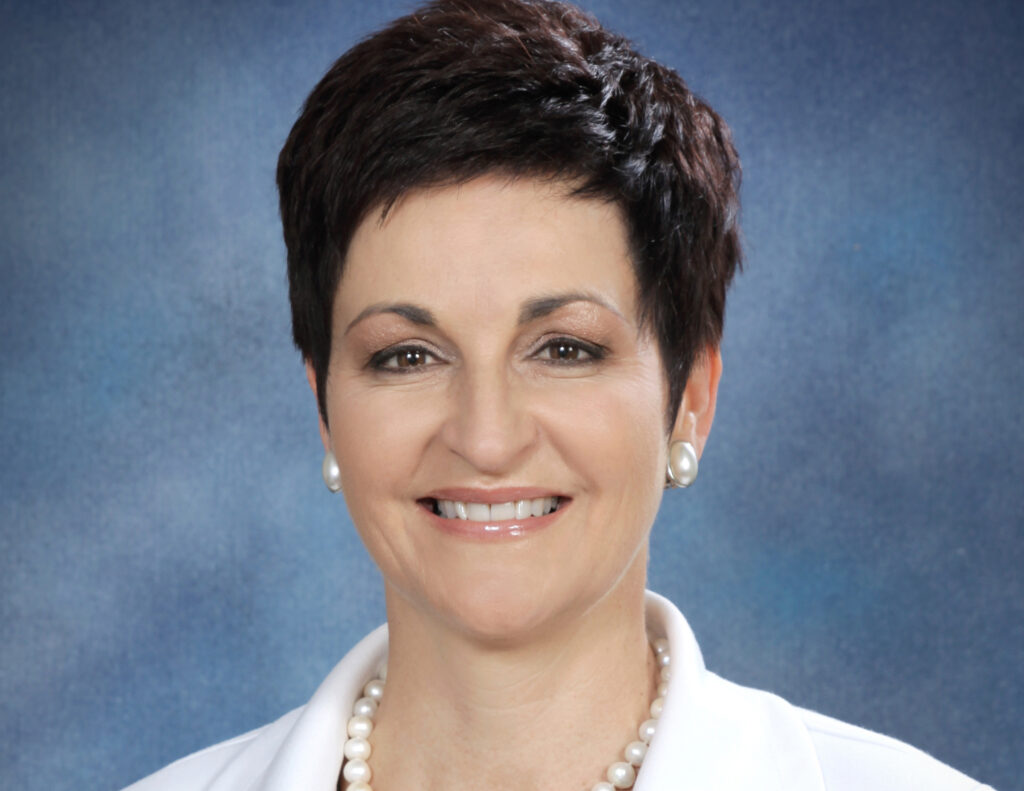 Professor Dalena Van Rooyen, Deputy Dean, Faculty of Health Sciences at Nelson Mandela University
Professor Dalena Van Rooyen, Deputy Dean, Faculty of Health Sciences at Nelson Mandela University
“Key to this is the use of indigenous knowledge systems, working with frontier modern science to promote a holistic philosophy of healthcare and wellbeing.
“We see our diversity as a key source of strength to medical practice; and we want our graduates to have the adaptive expertise to work in socially and spatially-diverse contexts in which to promote public healthcare goals.”
Beyond programme-specific training, the University will also deploy its research and innovation capabilities to search for new diagnostic, therapeutic and vaccine technologies in the fight against Covid-19 and future pandemics, legacy communicable diseases such as TB and HIV/AIDS, and climate-related health risks of the future.
The use of big data analytics, artificial intelligence (AI), machine and deep learning tools, together with Nelson Mandela University’s long standing capabilities in mobile, remote sensing and robotic technologies will be crucial assets in communities to adapt and mitigate potential periods of disruptive change.
“Similarly, we hope to deploy these capabilities to enable effective interventions in response to future climate-driven health threats,” Professor Muthwa said.
Phenomenal support and encouragement
In sharing her experience, Faculty of Health Sciences Deputy Dean Professor Dalena Van Rooyen praised all stakeholders who played a role in making the Medical School possible, stretching across South Africa’s Higher Education landscape.
“It was phenomenal to see medical schools from all around the country share words of encouragement and guidance along the way. Whenever we reached out to our fellow Health Sciences colleagues, they shared their expertise,” Professor Van Rooyen said.
“Part of the success of the establishment of the Medical School was that the support extended beyond that of the University and the Province. It came from all around the country.”
In addition to the support received from the other Universities, Professor Van Rooyen expressed immense gratitude to the former Dean of the Faculty, Professor Vic Exner, the late Dean Professor Lungile Pepeta and new Dean Professor Zukiswa Zingela for their impact in bringing the Medical School to fruition.
“There has also been tremendous guidance and assistance across the various Nelson Mandela University portfolios. The workstreams led by the Deputy Vice-Chancellors for People and Operations, Mr Lebogang Hashatse, and Learning and Teaching, Professor Cheryl Foxcroft, all come together to embrace the initiative, pull together, and make this major project a reality. Likewise, the Executive Director of Finances, Mike Monaghan and his team have given incredible support.”
The tragic death of Professor Lungile Pepeta in August 2020 propelled Professor Van Rooyen into the position of Acting Executive Dean of the Faculty to continue the work leading to the first group of students who commenced with their six-year Bachelor of Medicine and Bachelor of Surgery (MBChB) degree in 2021.
High demand from diverse applicants
Dean of Students Luthando Jack highlighted the diversity of applicants drawn to the new programme.
“They are from all over the country and it was an exciting year as we learnt their needs and how we can best assist them,” he said.
More than 5 500 applications were received for the first year of 50 places, and the second year intake of 80 places in 2022.
Jack said that from 2022, the University planned to place all Faculty of Health students in the same residence, as their academic calendar differed from other fields of study. They would be housed in a new 500-bed residence on North Campus, part of the University’s infrastructure drive to add 1 800 student beds.
“Reliable transport is available and we have a shuttle service to take the students to Missionvale, and there are learning and teaching spaces on campus for those who stay in the city centre,” Jack said.
He also highlighted the work of the The Universal Accessibility and Disability Services (UADS) unit, saying “students with disabilities are not an afterthought, and UADS does fantastic work, for example with assistive devices where necessary”.
Professor Zukiswa Zingela joined Nelson Mandela University from Walter Sisulu University in Mthatha, until now the only Medical School in the province.
“Not having a second Medical School was encouraging brain drain from the province but now we are increasing our chances of keeping our talent,” Professor Zingela said. “So many who are from the Eastern Cape are heading different departments in other provinces, and doing incredibly well where they are, but we would have preferred them to be here!”
Professor Van Rooyen concurred: “Everyone understood what this programme would mean, not only for the province, one of the poorest provinces in South Africa, but also for the country. We really have a dream team in the Faculty who believe that what matters is the health of the people we serve, and to provide a comprehensive healthcare system to the people in our communities.” — Gillian McAinsh
—————————————————————————————————————————————————————————————
Pushing digital frontiers to enable learning and teaching
Nelson Mandela University’s investment in Information and Communications Technology (ICT) is preparing its medical students to work in an increasingly digital world.
The University’s Interim Director of ICT Operations Gary Ownhouse outlined how the University is embracing information and communications technology (ICT), noting that students have access to state-of-the-art equipment and make extensive use of online learning resources.
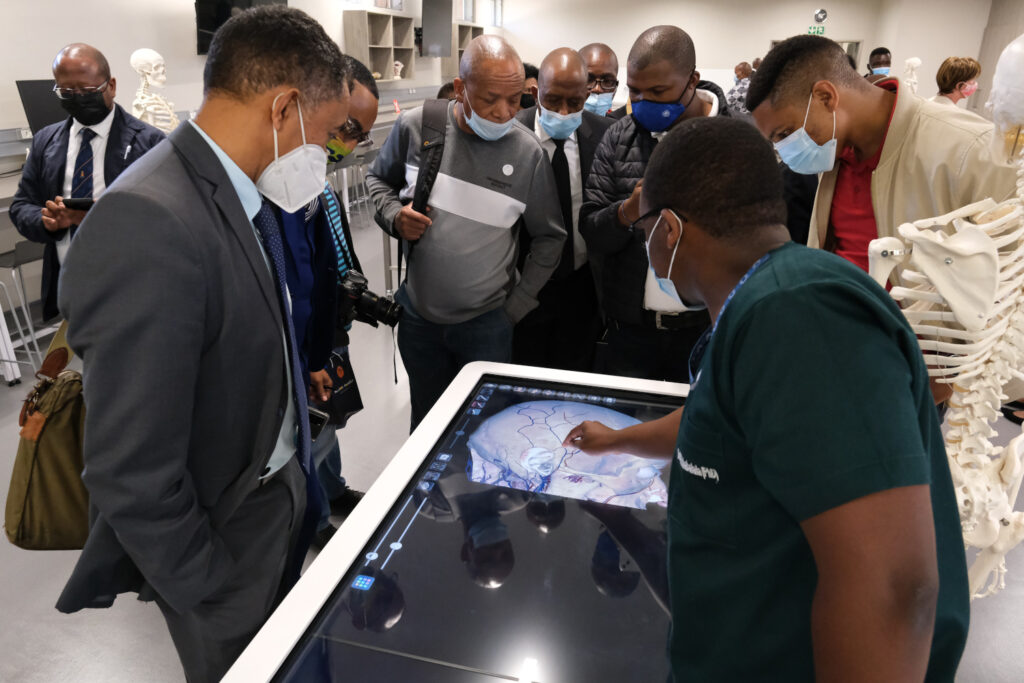 Senior Lecturer: Human Anatomy Dr Zithulele Tshabala demonstrates how the state-of-the-art Anatomage Table works at the launch of the Medical School
Senior Lecturer: Human Anatomy Dr Zithulele Tshabala demonstrates how the state-of-the-art Anatomage Table works at the launch of the Medical School
“They are also supported by a technical team with diverse competencies that enhance the areas of learning and teaching,” Ownhouse said, saluting the professionalism of the ICT staff.
Mandela University Senior Engineer for Blended Learning Shaun Meyer spelled out three key IT areas:
- ICT devices, for example, laptops with 3G connectivity, and the audiovisual and recording equipment used in the classrooms;
“There is a strong electronic presence in any Medical School today, both on the ICT side as well as the actual medical components of the course,” said Meyer.
Technology plays a vital enabling role across all the University’s sites and it is essential that all new infrastructure is compatible with existing platforms. Demand has surged during Covid-19, due to the move to hybrid and online learning.
The supporting ICT strategy stretches beyond Missionvale Campus into hospitals, community healthcare centres and clinics in the Nelson Mandela Bay Metro. Later, it will extend further afield to parts of the Eastern Cape and beyond.
The new Medical School has a senior instructional designer to enhance digital literacy, lecturers and two dedicated ICT staff, a senior support technician who identifies and proposes solutions and integrates new technologies, as well as an e-technologist.
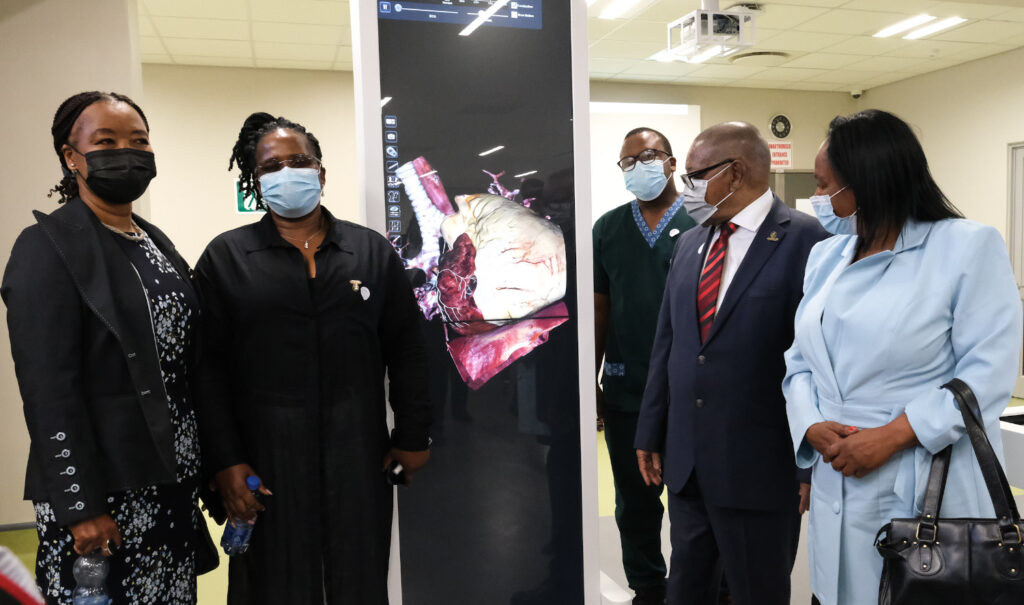 Guests examine the Anatomage Table at the launch of the Medical School
Guests examine the Anatomage Table at the launch of the Medical School
As Senior Instructional Designer, it is the task of Ra’ees Khan to ensure that students have access to the highest quality resources and artefacts to create a rich and meaningful learning experience.
“Our Learning Design Unit is equipped with industry-leading human capital skill sets and state-of-the-art facilities and technologies that allow for the production of high-quality educational multimedia artefacts,” said Khan.
The Medical School’s multimodal approach uses a diverse range of media including customised flipbooks, interactive videos, branching scenarios, virtual reality, gamification and much more.
The medical education unit includes Total Quality Management standards and processes that enable the creation of videos, animations and other material which is exciting, fun and supports educational development.
“The high-tech equipment and facilities give the perfect opportunity to create authentic learning experiences, which are contextually responsive and help to ‘future-proof’ our doctors-in-training,” Khan said. “As much as it is fun and creative, it is actually a very scientific process, based on cognitive psychology and how the brain works.”
Practices are benchmarked against global industry standards of excellence in teaching and learning, a core strategic focus areas.
“We use data-rich practices to consistently make evidence-based decisions aimed at improving delivery while measuring our successes against our objectives on a frequent basis,” said Khan.
“Our high levels of innovation and research outputs will radicalise industries as we know it through our quest to create the best MBChB qualification in the world. I would certainly describe the institution as a rapidly emerging leader.”
High-speed connectivity
The networking infrastructure includes high-speed connectivity between buildings on Missionvale Campus, and between the University’s other campuses, as well as a 10-gig fibre link between the Missionvale Campus and the Gqeberha training hospitals of Livingstone and Dora Nginza.
A secure international roaming service called eduroam, developed for international research and education, is available in identified spaces to give students easy and secure network access while they are at the hospitals.
Students receive ICT orientation and training in areas specific to their MBChB programme. They need these skills from the get-go, as they use various technology-based platforms in the basic sciences, which include Primal Pictures, Complete Anatomy and four Anatomage tables.
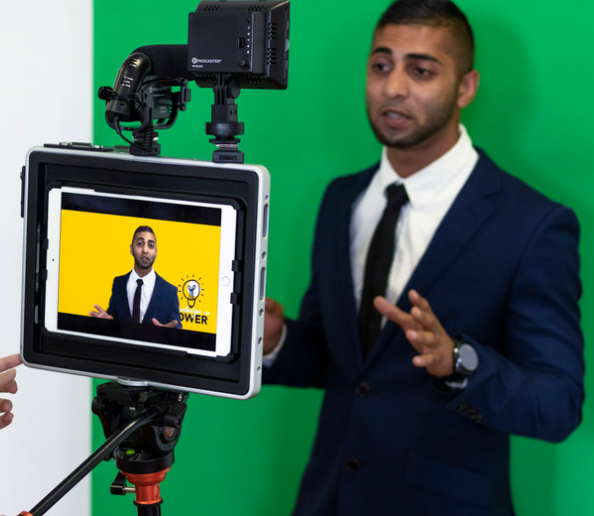 Senior Instructional Designer Ra’ees Khan demonstrates how to use the Padcaster
Senior Instructional Designer Ra’ees Khan demonstrates how to use the Padcaster
Computer studies, referred to as Digital Literacy, forms part of a supportive first-year module called Academic Literacy and Reasoning. There is further backup from a dedicated Missionvale Campus computer centre for medical students as well as the general computer facilities and support services on campus.
Senior ICT support technician Rolihlahla Pityana and e-technologist Mark Domingo have been training and supporting lecturing staff to use the cutting-edge tools needed for hybrid and online learning.
“The equipment is very new and we have the responsibility of making sure that the hardware and the software work together seamlessly to sharpen key skills for students’ future,” Pityana said.
He cited the sophisticated Clinical Skills Laboratory, where demonstrations, skills practice, group activities and assessments are done, and students perform procedures such as CPR or taking a patient’s blood pressure while being filmed. For demonstrations, high-tech, lifelike mannequins are used to represent real-world patient health scenarios. The lecturer can then give feedback and replay the video material with the students, enabling further discussion and learning in one of the debriefing rooms.
GoPros, Padcasters and other video filming equipment such as ceiling cameras with built-in microphones are used to give detailed and varied views that enhance debriefing, with each of the individual cubicles in the Clinical Skills lab set up for interactive learning.
The Medical School ICT project also has synergies with the Off-Campus Connectivity project, which began in November 2019. This is aimed at improving the connectivity to students living in accredited off-campus residences across Nelson Mandela Bay.
To counter the ever-present threat of power cuts across South Africa, the campus data centre has a generator backup and the Medical School has its own supply of power: “The generator kicks in immediately if we have load-shedding,” said Pityana. “We are ready for anything.” — Gillian McAinsh
—————————————————————————————————————————————————————————————
Our position in Missionvale is geared towards serving society
Nelson Mandela University had a very clear goal in mind when it decided to place its new Medical School in the heart of Missionvale, a desperately under-resourced part of Gqeberha.
The University chose a campus in one of the Bay’s poorest and least-served areas as a reflection of its values, which are a key part of its Vision 2030 strategic trajectory. South Africa’s Minister of Higher Education, Science and Innovation, Dr Blade Nzimande, and Minister of Health Dr Joe Phaahla recognised this in their respective messages at the launch of the school in 2021.
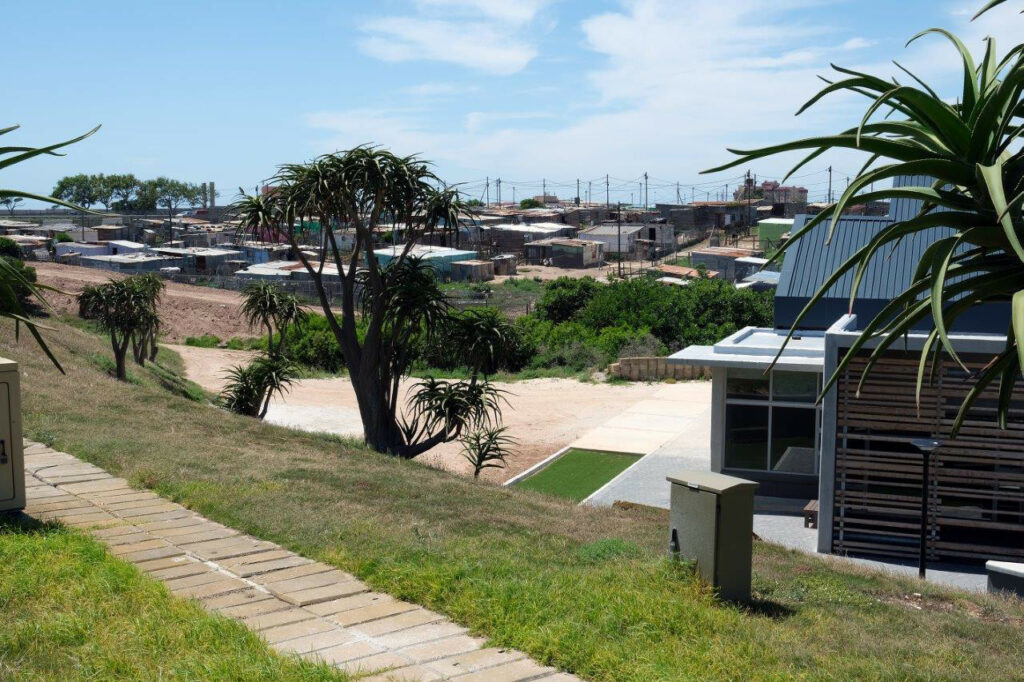 The Medical School is deliberately positioned on the University’s Missionvale Campus to better serve the community
The Medical School is deliberately positioned on the University’s Missionvale Campus to better serve the community
“The location of this medical school at the Missionvale campus has significance, particularly its location close to Dora Nginza Hospital and other community sites,” said Dr Nzimande. “This offers the school excellent opportunities to fulfil its vision as a medical school and the broader health sciences faculty.
“What is more pleasing is that the Missionvale location is also within the socioeconomic development precinct and education hub.” He said that this offered “opportunities for an embedded health sciences programme, strongly responsive to community needs, and also excellent opportunities for learning for medical school students”.
Dr Joe Phaahla, who also spoke at the launch, agreed: “This is undoubtedly a major boost for public health and the local economy because of its location in the township areas of Missionvale and Zwide, where ordinary working class and unemployed people are residing,” said the Minister.
“This will conveniently enable students to undergo practicals and in-service training in both urban and peri-urban environments; training more doctors with a strong primary healthcare orientation and willingness to work in rural and urban underserved areas is essential.”
Medical School Director Professor Fikile Nomvete spelt out more benefits. “Our school must be oriented towards, and respond to the community, and our geographical location speaks to that vision,” said Professor Nomvete. “We are really well positioned for primary healthcare and community-oriented training.”
The city’s northern areas lie slightly west, while New Brighton, KwaDwesi, KwaMagxaki and other major townships are close by to the east, and the campus is next to a key arterial road, halfway between Gqerberha and Kariega. This proximity allows for academic development partnerships and engagement with FET colleges, schools and civil society.
Executive Dean of Health Sciences Professor Zukiswa Zingela noted how it capitalises on the University’s existing footprint in Missionvale.
“We are already providing a service here through our law and psychology clinics, the Emergency Medical Services Department is also moving here and now, with the new Medical School, this campus can only expand.
“The positioning allows all of these different arms which contribute to the training, and to services in the community, to come together under one umbrella,” said Professor Zingela. — Gillian McAinsh
—————————————————————————————————————————————————————————————
The medical students are centred in community engagement
The University’s new Medical School gives students the opportunity to interact with the community from the start, and looking back on 2021 this has been an enriching experience all round.
As Medical School Director Professor Fikile Nomvete said, community engagement is so much more than a slogan; it has to be an authentic and multi-dimensional process, and include the voices of others.
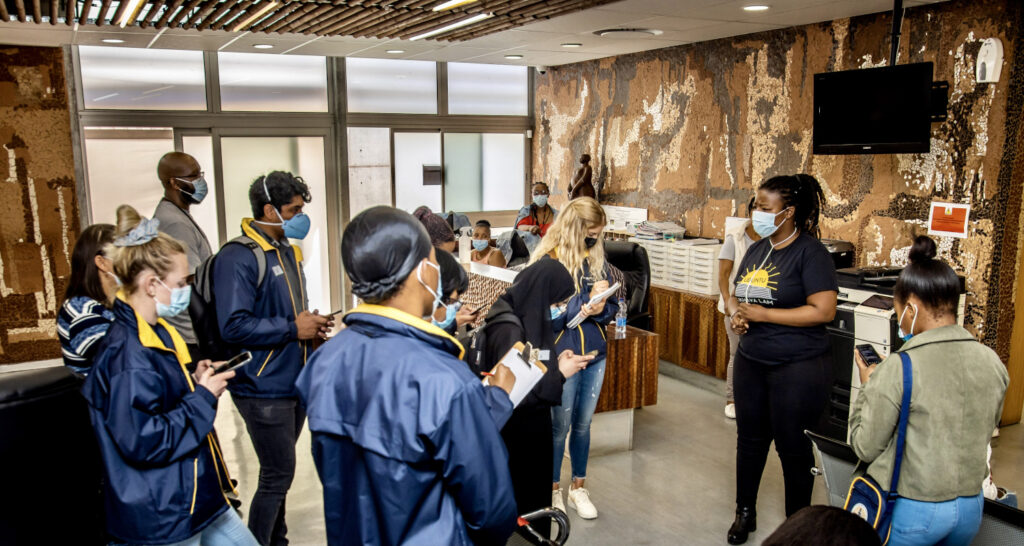 Medical School students visit Ubuntu Pathways in Zwide as part of their training
Medical School students visit Ubuntu Pathways in Zwide as part of their training
“This is not an ivory tower model, it is hands-on, as our students go out into the community to meet the residents and hear their voices,” Professor Nomvete explained.
“Even with the first year in 2021 disrupted by Covid-19, our new students have visited households and clinics in the surrounding areas. Visiting people in their homes, standing with them where they are and listening to the story of their lives yields an invaluable experience no textbook can give.”
The class of 50 medical students visited the surrounding areas of Missionvale, Govan Mbeki, Zwide, Chatty, Gelvandale and West End, as well as clinics, the NGO Ubuntu Pathways and Missionvale Care Centre.
“Community visits orientate us and remind us that this is where the actual work is,” said first-year student Qasim Osman.
“When we think of doctors we think of hospitals and of white coats and scrubs, but that’s not all that doctors do as, if we can prevent disease before it happens, it’s far more effective. And this is especially so with the healthcare system in South Africa, which is severely burdened.”
Reaching into communities
Community platform coordinator Marie Williams said the household visits needed to be carefully planned in consultation with local clinics long before students meet the residents.
The first year module of Theory and Practice of Medicine has three streams: theory, medical communication and community; Williams works on community.
“Our model is very much community-based, so we start by asking the clinic managers to help identify the households and for permission to bring the students,” Williams said.
Accompanied by a ward-based outreach team leader, Williams then visits each family twice. On the first visit she will get to know the residents, and answer their questions: “I’m basically telling the story of the Medical School to the community.”
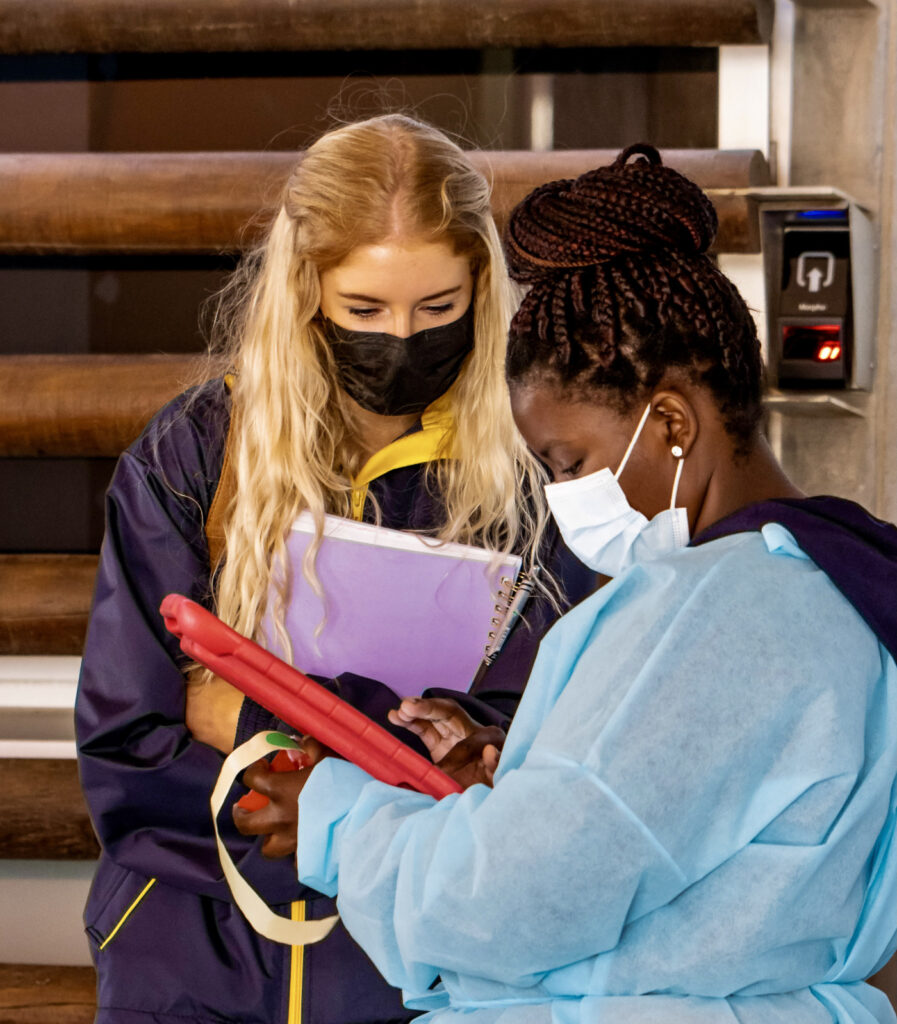 Ubuntu Pathways intern Portia Tsibaphi, right, and medical student Caitlin du Preez check on Covid-19 screening
Ubuntu Pathways intern Portia Tsibaphi, right, and medical student Caitlin du Preez check on Covid-19 screening
If the household is willing, Williams will return on another date for official written consent. Only after this do the students go out, in teams, to get the practical experience linked to what they are learning in the classroom.
“When the students go to the households they are accompanied by a community mentor who is familiar with the area, and that’s very important.”
Students will return to the same households in 2022, with new households identified for further visits.
On the student visit to Ubuntu Pathways in Zwide in October, for example, students learned about mission, vision and the integrated services rendered by the non-governmental organisation.
Making services accessible
Ubuntu external liaison manager Ziyanda Ndyoko said the visits helped the NGO and the University.
“The partnership between Ubuntu Pathways and the University will benefit both parties and the community at large by changing lives and making the services accessible to under-resourced and vulnerable people,” said Ndyoko.
She hopes that by showing the students the Ubuntu programmes, more may “gain passion to work in the community or public sector to serve those who are under-privileged”.
“They shadowed nurses, a doctor, pharmacist, data capturers and caseworkers at the paediatric clinic,” Ndyoko said. They also shadowed other staff at the vaccination site at Ubuntu, and were given an overview of the centre’s facilities, such as its job skills training and early childhood development programmes, its school and dietetics services.
Community visits have taken some of the students into areas they had never visited before, opening up a whole new world for some.
“While initially daunting, it has been very eye-opening and humbling to visit households in these areas,” student Anita Ellary said. “I look forward to learning more (about myself and the community).”
Missionvale Care Centre community outreach supervisor Esterlene Campbell said the medical students were “so vibrant and interested in what we were doing”.
Missionvale Care Centre also left an impression on student Zamokhule Ngema.
“I learnt that not everything is about money; small things accumulate to make a big difference. It is amazing to see how it all began, and the way people at the centre give love and compassion,” said Ngema.
Matthew Harrison said: “It is extremely inspiring and motivating to witness the impact the passionate healthcare professionals at these places have, especially right from the beginning of our studies.” — Gillian McAinsh
—————————————————————————————————————————————————————————————
The meaning of Missionvale: What this campus brings to Nelson Mandela University
Last year was momentous for Nelson Mandela University due to the long-awaited opening of the Medical School on our Missionvale Campus.
It was an exciting development for Gqeberha, and for the province, as it is only the 10th Medical School in the country.
So much has changed, irrevocably and for the better, since Missionvale Campus was first set up as Vista University by the apartheid government in the early 1980s. Vista was deliberately built for black South African children, part of an abhorrent and deeply painful era that saw many young people denied access to the-then University of Port Elizabeth, purely on the basis of race (UPE was founded to cater for white students as an alternative to the more “liberal” Rhodes University in this province).
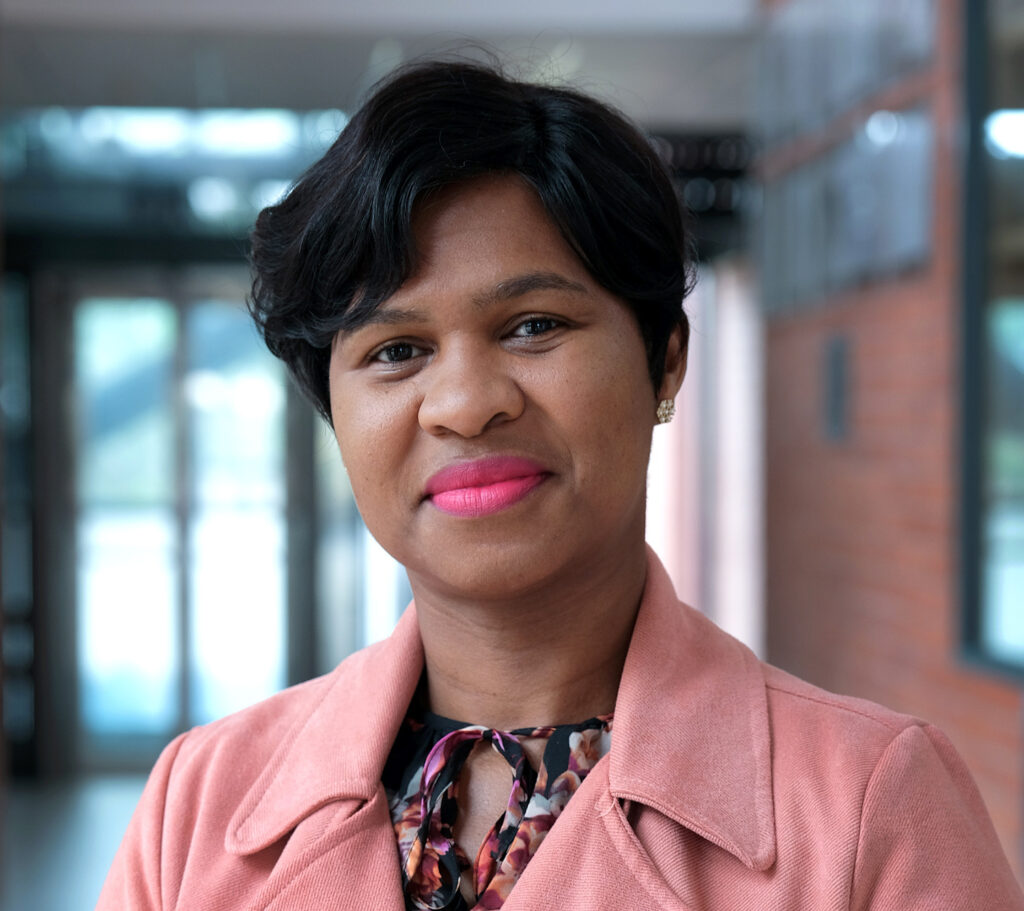 Sharon Masiza, Senior Director for Missionvale, Bird Street and Second Avenue Campuses at Nelson Mandela University
Sharon Masiza, Senior Director for Missionvale, Bird Street and Second Avenue Campuses at Nelson Mandela University
Vista closed in 2000 and the physical campus later became part of the greater whole now named Nelson Mandela University. However, that unjust past still casts a long shadow on our country. Apartheid may be gone but poverty, unemployment and inequality persist, which makes it even more imperative that this campus positions itself in service to society.
And, while the South Campus in Summerstrand may be the largest of our seven campuses, Missionvale may have the biggest heart, echoed in the social impact of so much work undertaken here — with our Medical School being the latest addition.
Investment in our Medical School
Our Medical School’s educational orientation focuses on promoting healthier lifestyles, community health and wellbeing, food security and poverty alleviation, and economic development. This, once more, is a deliberate strategy.
However, lofty visions and strategies mean little unless backed up with resources. On infrastructure alone, Mandela University and its partners have invested more than R114-million in upgrades to buildings that house the medical programme.
This covers a wide range of laboratories, lecture venues and offices. It also provides dedicated spaces for nursing and biokinetics students.
This excludes the cost of our state-of-the-art equipment, which includes the world’s first virtual dissection table, a $100 000 Anatomage Table, which helps our students learn anatomy. Other subjects such as clinical skills and physiology also have sophisticated machinery, with technology enhancing traditional teaching methods in powerful ways.
Keeping people safe
Valuable though the equipment and property on Missionvale Campus is, our most precious asset is our people.
Crime is a national challenge across South Africa and we have a comprehensive security plan in place, drawn up in consultation with key stakeholders. We have invested in numerous security improvements and some of these have already made an impact on our community.
It is heartening to hear that our armed response patrols in the street leading to campus have led to a decrease in opportunistic crime to the benefit of those living near the busy intersection of Johnson and the old Uitenhage roads.
There are ongoing investments in surveillance, access control, intruder alarm and Business Management Systems, but working with students, staff and community members is equally important to ensure the safety of the entire neighbourhood.
A solid foundation for education
The new Medical School is exciting, definitely, but it does not stand alone on our ever-developing campus. Another jewel in the Missionvale crown is the R56-million Foundation Phase complex of the Faculty of Education, which opened in 2016.
Until then, student teachers had classes in Summerstrand. By having our flagship programme here, we are relaying the message that all children deserve to receive a first-class educational start in life, and we also bring teacher education closer to some of the communities we serve.
It demonstrates that there is no place for “us” and “them” at Mandela University and shows our commitment to driving impactful change in education in South Africa.
Missionvale also has several engaged entities adding to transformation, such as:
- Our law and psychology clinics, which offer students the chance to encounter the real world at the same time as offering indigent clients top-class consultation services, under rigorous supervision.
- Through the Manyano Schools Network, the Centre for the Community School works alongside educators and parents to build and strengthen our less well-resourced schools.
- A partnership with an NGO, private enterprise and the community has seen innovative aquaponics projects yield several tonnes of fish and fresh produce annually.
And there are many other initiatives, projects and partnerships which further academic development and engagement.
There is also the Renewable Energy Strategy, part of an overall sustainability drive on each campus. In Missionvale, a proposal has been accepted for a multi-million rand photovoltaic solar panel plant, which we hope to install in mid 2022.
Today Missionvale Campus is a beacon of hope for the surrounding townships. We also want to learn from and collaborate with our community, sharing knowledge and adding value. This is a two-way exchange as we build on each other’s strengths.
Despite its history, Missionvale Campus’s origins do not define its future. Today the gates of learning are open, inclusive and welcoming on this vibrant campus of Nelson Mandela University.
Sharon Masiza is the Senior Director: Missionvale, Bird Street and Second Avenue Campuses. She holds a Master’s degree in Business Administration as well as a National Diploma in Industrial Engineering from the-then PE Technikon, now Nelson Mandela University.
—————————————————————————————————————————————————————————————
Engagement in action on Missionvale Campus
The new Medical School joins numerous entities and departments on the University’s Missionvale Campus that reach out to engage with their neighbours. Helping to heal the psyche, putting the fizz into physics, providing access to legal services, and more, this ever-developing campus of Nelson Mandela University is a hub of community engagement.
Psychology and Law Clinics
The Missionvale Community Psychology Centre (MPC) is a living laboratory where students are able to apply theory learnt in the classroom in a practical manner through engaging with the broader community.
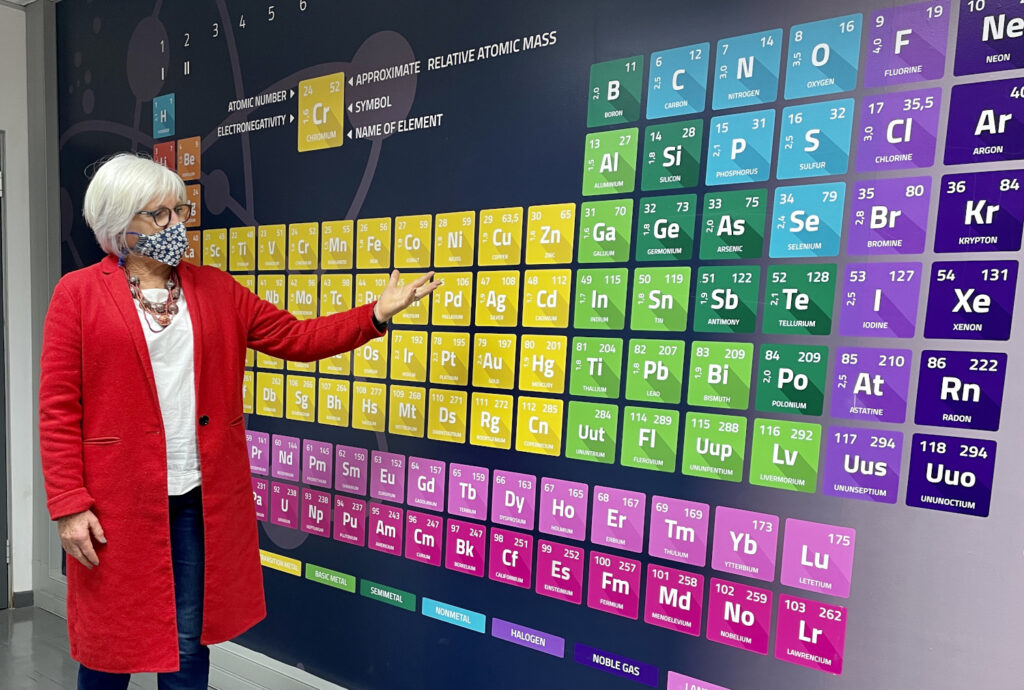 STEM in ACTION manager Isabel van Gend shows the colourful and well-equipped Marie Curie chemistry lab
STEM in ACTION manager Isabel van Gend shows the colourful and well-equipped Marie Curie chemistry lab
Through the MPC and the South Campus psychology clinic, Nelson Mandela University provides comprehensive and accessible psychotherapeutic services. Clinical psychologist and lecturer Dr Thabisa Mabusela, Director of the MPC, outlined how easily accessible they are, in particular to a population which in the past has often been underserviced.
““We are well situated to look after the majority of our clients. Missionvale, for example, is largely a coloured area but across the street from us is Zwide, which is a historically black township. And, even though we are in Missionvale, we are open to anyone and everyone,” said Dr Mabusela.
In a similar way, the Law Clinic is a full-fledged Legal Aid Office which is set up and managed as far as possible on the pattern of an attorney’s office.
It aims not only to provide free legal services to people in need but also to offer exciting opportunities to train law students in a real-life setting. It exposes them to community service, the dire need for access to justice by the poor, and the possibilities of contributing to public welfare.
“We provide access to justice in the form of high-quality legal services to indigenous peoples of the community,” said Law Clinic Director Matilda Smith. “Having the clinic here in Missionvale is fantastic because we are surrounded by townships, formal and informal, and a large number of our clientele come from nearby.”
The facility is free, although clients and clients have to undergo a means test (as they would at Legal Aid SA). And the service is in demand: several hundred pairs of feet come through the clinic each month in a quest for justice.
Faculty of Education Foundation Phase
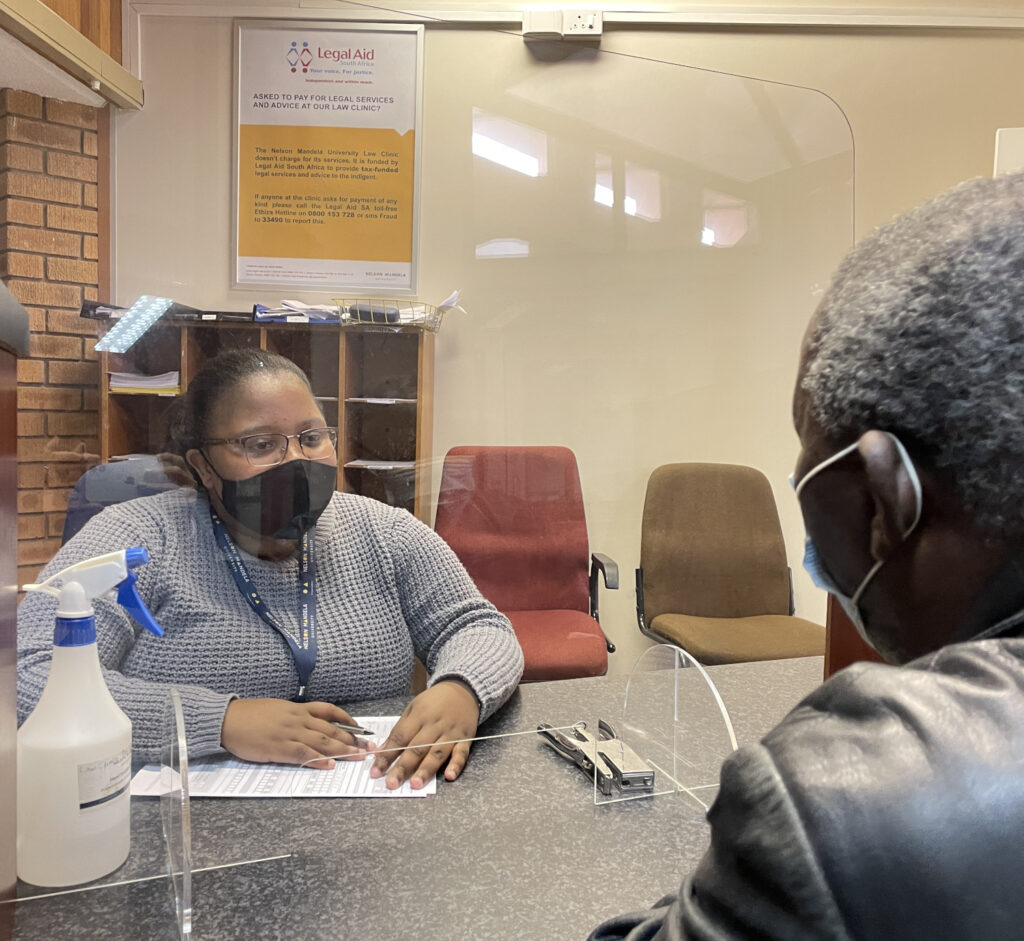 Law Clinic receptionist Zanele Mlindazwi helps a client register for legal assistance
Photo: Gillian McAinsh
Law Clinic receptionist Zanele Mlindazwi helps a client register for legal assistance
Photo: Gillian McAinsh
The Foundation Phase of the Faculty of Education is its flagship, housed in a state-of-the-art building erected in 2016. The Foundation Phase of grades R-three ushers children into the world of schooling, teaching them to read, write and count — the ability to read for meaning is essential, as it forms the basis for all other learning. The placement of the Foundation Phase in Missionvale brings an early learning environment to where it is most needed and contributes to meeting the Eastern Cape’s urgent educational needs.
Centre for the Community School (CCS)
The CCS is an engagement entity of the Faculty of Education and part of the University’s Engagement and Transformation portfolio, aiming to create a systematic support system and a space for community engagement. Under the leadership of Dr Bruce Damons, these equalising spaces seek to critically engage with multiple stakeholder communities in a way which acknowledges and celebrate the knowledge and agency they bring to engagement across the University.
Centre for Integrated Post-School Education and Training (CIPSET)
CIPSET is a centre of learning, engagement and research excellence through socially engaged public scholarship in the areas of community, vocational and worker education. It works collaboratively for progressive community, adult and worker education by developing the capacity and power of young researchers as well as community and worker educators. It also aims to construct an enduring platform to transform the post-schooling system, with a view to sustainability over time.
STEM in ACTION
The University’s STEM in ACTION team present educational programmes in and around Missionvale Campus. This community engagement entity supports learners, educators and parents through its “hands-on, brains-on” approach to learning and teaching science, technology, engineering and maths.
“Everything that we do has a social constructivist approach where you learn by doing,” said STEM in ACTION manager Isabel van Gend. “Knowledge is constructed, not transmitted, by the learners themselves.”
Although Covid-19 has had an impact on many programmes, outreach is continuing where possible and, once restrictions lift and it safe to do so, the colourful and well-equipped labs named after science icons such as Albert Einstein and Marie Curie will again buzz with school pupils conducting experiments.
STEM in ACTION operations manager Tarin Roberts spelled out the entity’s practical nature: “We provide a space for learners to experience science by doing; it’s a multi-sensory learning environment where learners perform the experiments themselves and can see the colour change, they can feel the change in temperature, they can hear the collision and can even taste properties where possible.”
The idea is to motivate learners from grade three to 12 to take an interest in STEM subjects and to consider possible careers in these fields. At the same time, it also develops educators. — Gillian McAinsh
—————————————————————————————————————————————————————————————
Staff look back on an ‘exciting’ first year
It’s been an exciting time, said staff at the new Medical School as they looked back at their ground-breaking first year.
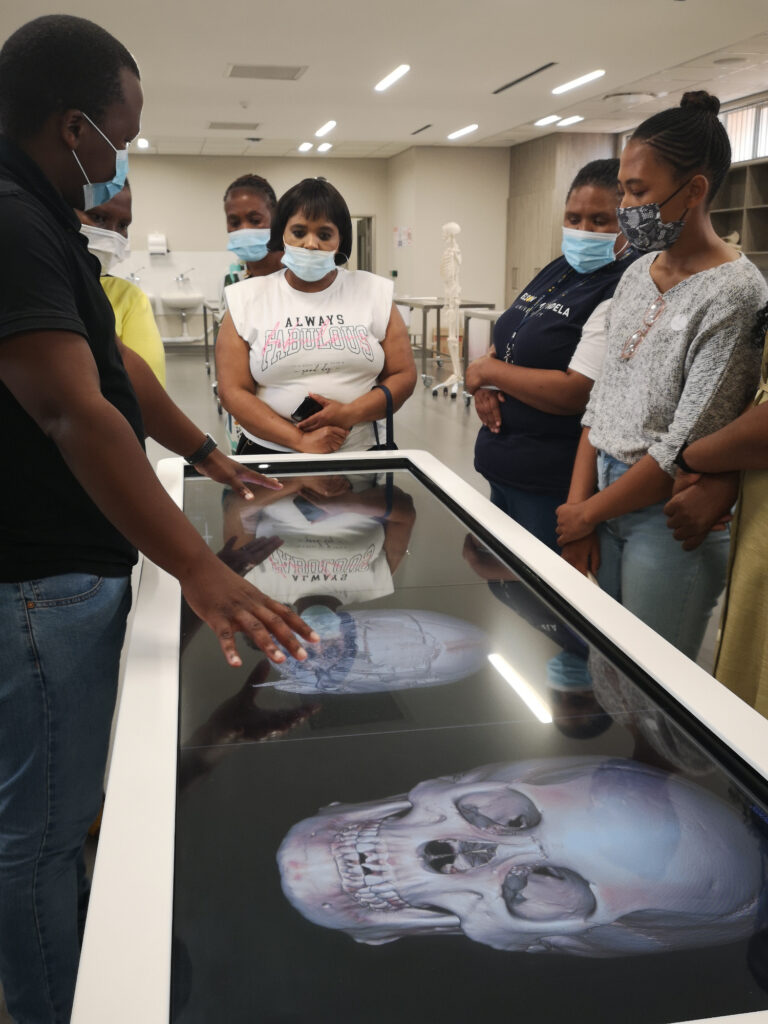 The Anatomage Table is among the technology at the Medical School that allows users to visualise anatomy exactly as they would on a fresh cadaver
The Anatomage Table is among the technology at the Medical School that allows users to visualise anatomy exactly as they would on a fresh cadaver
Staff were recruited from across South Africa and internationally from doctors, specialists and professionals who wanted to be part of the 10th Medical School in South Africa.
MBChB Curriculum Coordinator Dr Elizabeth du Toit said she planned to take what has worked on in 2021, and “make it even better” in 2022 and beyond.
“This year has been challenging but exciting and ultimately very rewarding as we have navigated the start of our Medical School and undergraduate MBChB training in the context of the Covid-19 pandemic and all that came with it,” said Dr Du Toit.
“We have learnt so much that we can apply to make our programme richer and more streamlined.
“For me a highlight has been seeing how our students have embraced their first year of study, we can see their growth on so many levels, and also welcoming new staff, and seeing and experiencing the amazing capabilities, ideas and skills they bring to our growing team.
“I hope that students and staff maintain the amazing resilience and flexibility that have been so evident in 2021.”
Senior Lecturer: Human Anatomy Dr Zithulele Tshabalala has loved delivering the curriculum to the first cohort of 50 students.
“This year has been a rollercoaster of emotions and events. With the continuing Covid-19 pandemic, there have been some disturbances in our programme, but we were able to adapt to whatever we faced,” Dr Tshabalala said.
“Heading into 2022, we look forward to being of further service to our students and communities. We will be presenting an exciting, innovative and digitally strong second-year curriculum which follows a successful first year delivery.”
Senior Lecturer and Coordinator of Theory and Practice of Medicine Dr Yoshna Kooverjee said the year had been exciting for students and lecturers alike.
“Flexibility, adaptation and a willingness to try allowed us to achieve our learning objectives despite the challenges of 2021,” said Dr Kooverjee.
Community visit assignments were a high point for Dr Kooverjee, as they enabled students to engage with families and clinics and to apply theory to practice in a real-world setting.
“Looking ahead to 2022, we aim to build on the successes of our first year as we continue to grow and develop, to provide our students with a solid foundation for their clinical years.”
Former KwaZulu-Natal doctor Saviana Nagiah, Senior Lecturer in Medical Biochemistry, said Nelson Mandela University’s investment in the role of technology in teaching and learning was “a definite asset”.
“The extremely sophisticated equipment at the Medical School includes Anatomage tables, Body Interact patient simulators, virtual reality and augmented reality headsets, and more,” said Dr Nagiah.
She also highlighted the “exciting challenge” of developing the University’s meaningful online content with the University’s Learning Experience Design team.
“We had to devise modes of teaching online, using hybrid learning to enhance classroom experiences, considering design and user experience, all while maintaining the institution’s trademark humanising pedagogy.
“Having started with four desks in one office we are now in a much bigger, ever-growing department where laboratory spaces and teaching venues are buzzing, and learning continues in the online and real world. It has truly been a remarkable ride.” — Gillian McAinsh
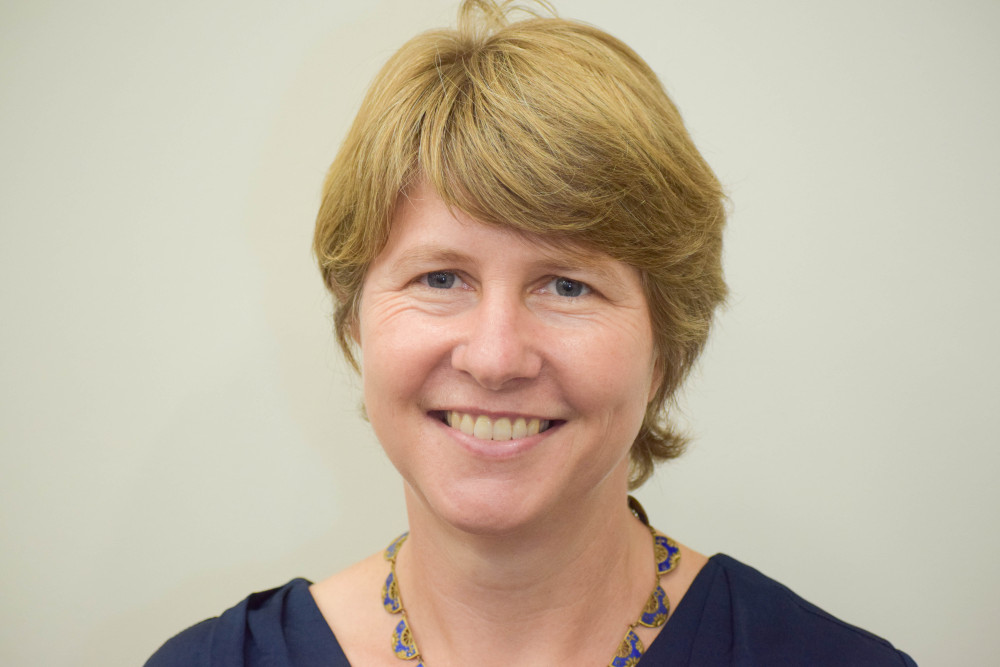 Dr Elizabeth du Toit
Dr Elizabeth du Toit
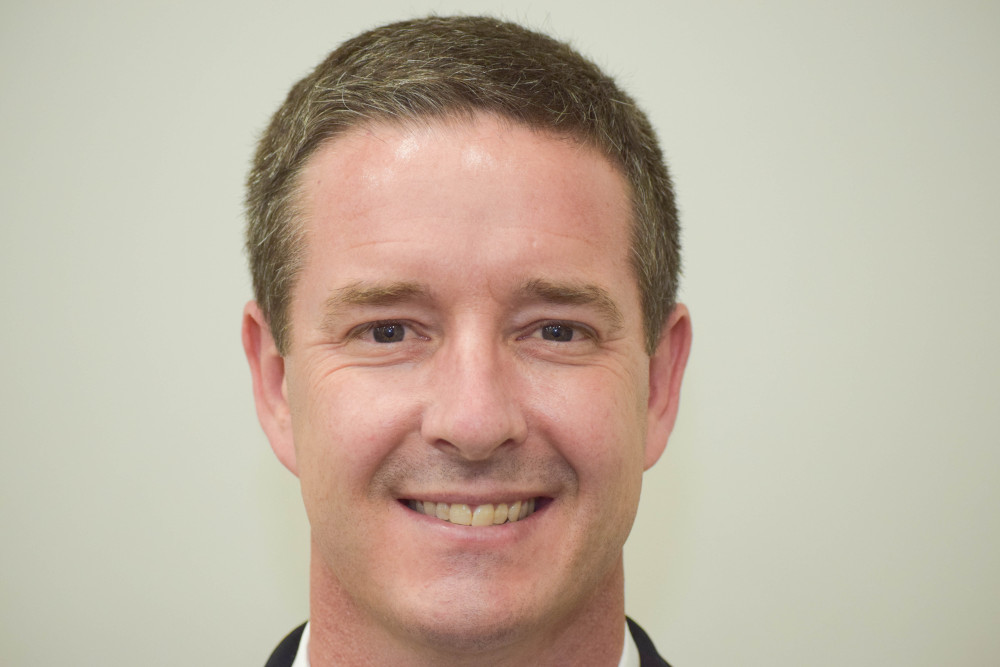 Dr Francois Fourie
Dr Francois Fourie
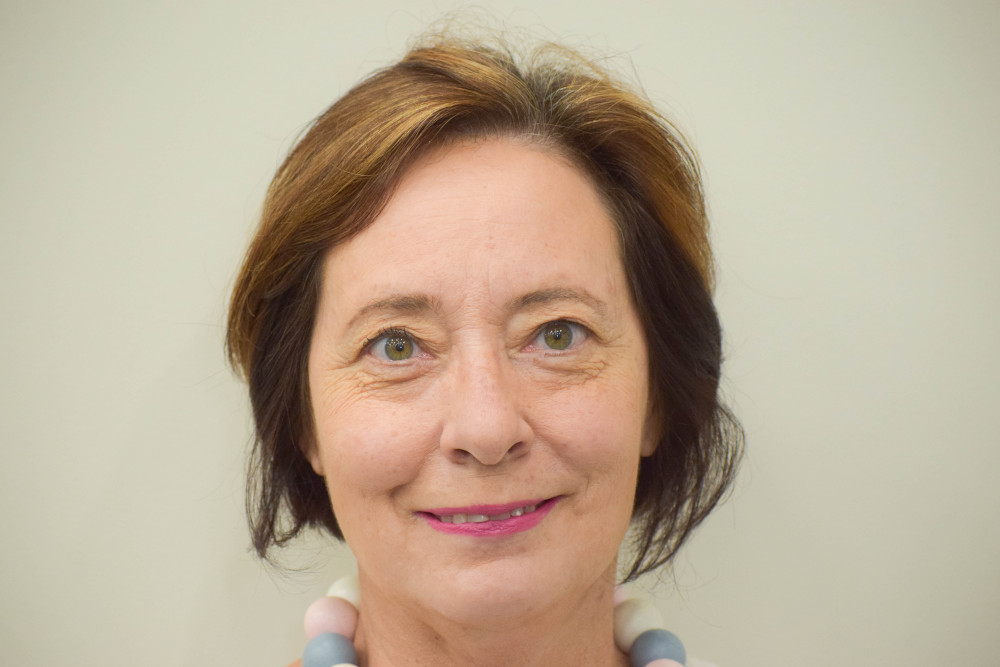 Dr Maria Phillips
Dr Maria Phillips
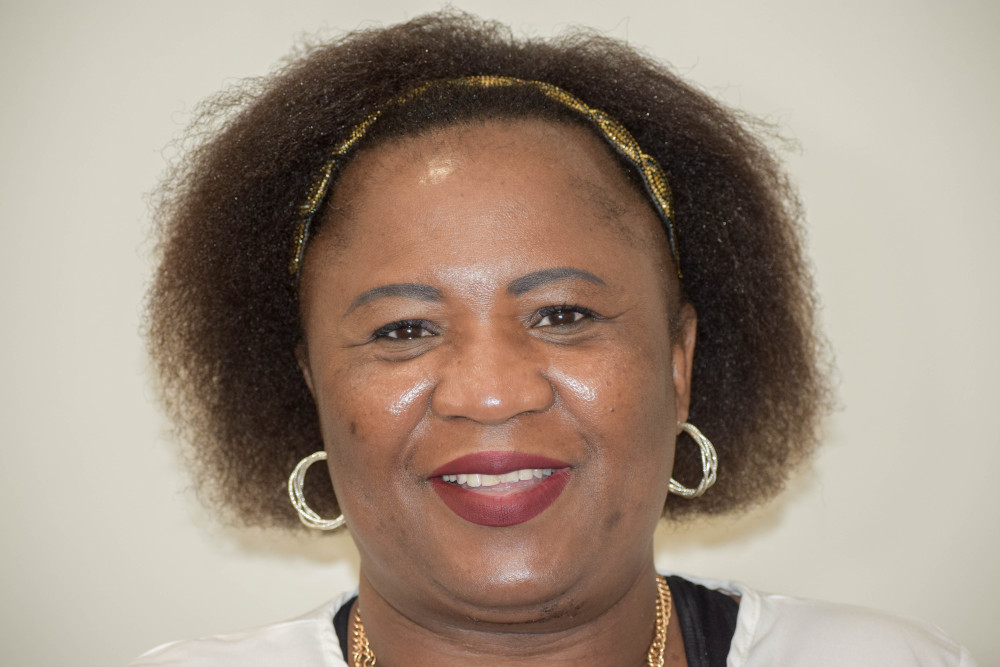 Dr Nomalungelo Ngubane
Dr Nomalungelo Ngubane
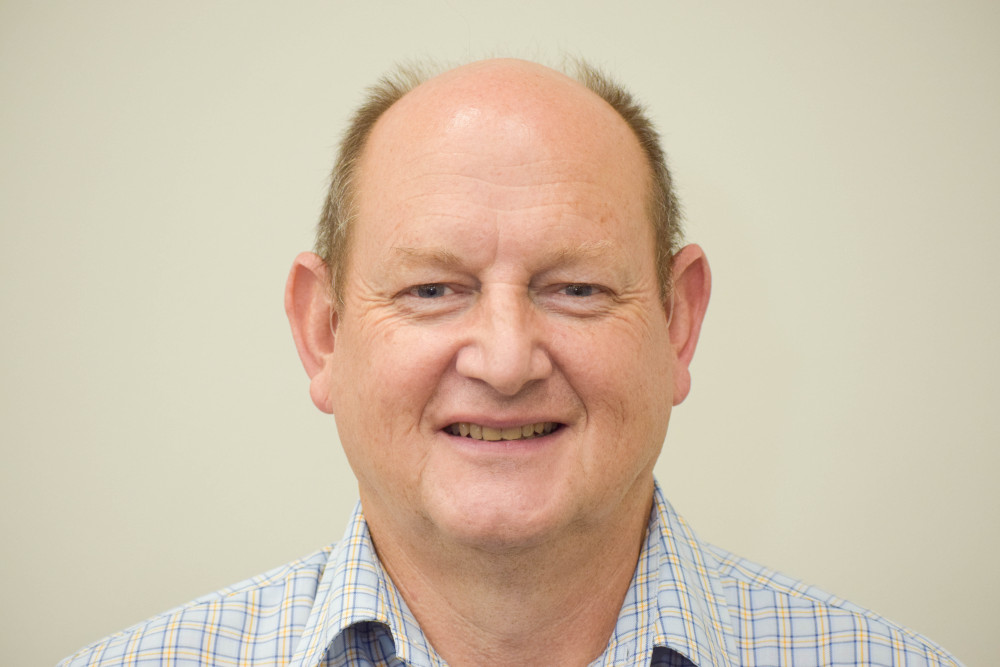 Dr Paul Caiger
Dr Paul Caiger
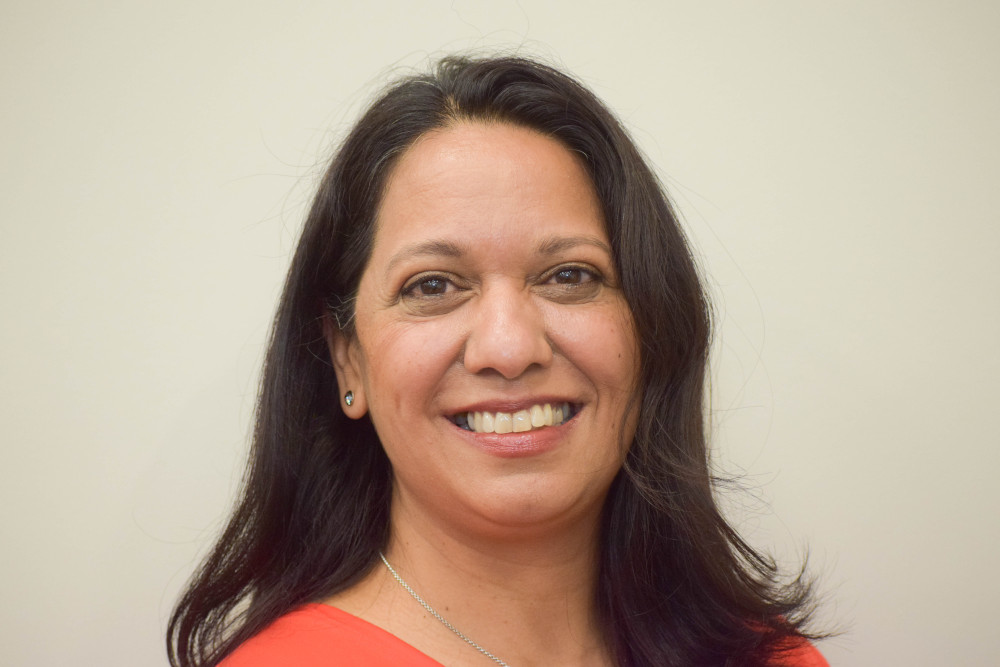 Dr Yoshna Kooverjee
Dr Yoshna Kooverjee
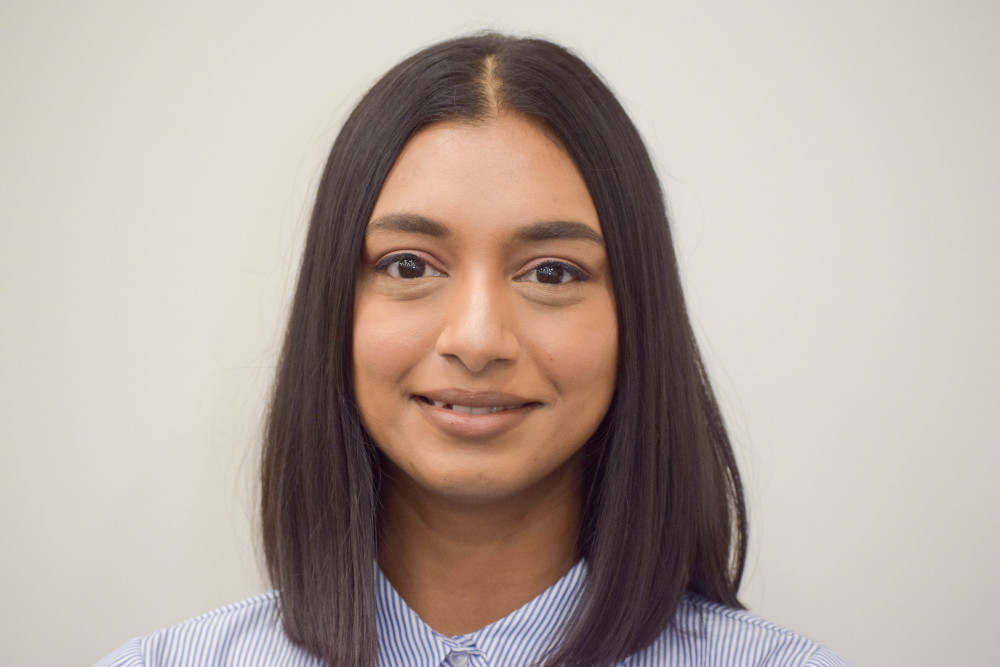 Dr Savania Nagiah
Dr Savania Nagiah
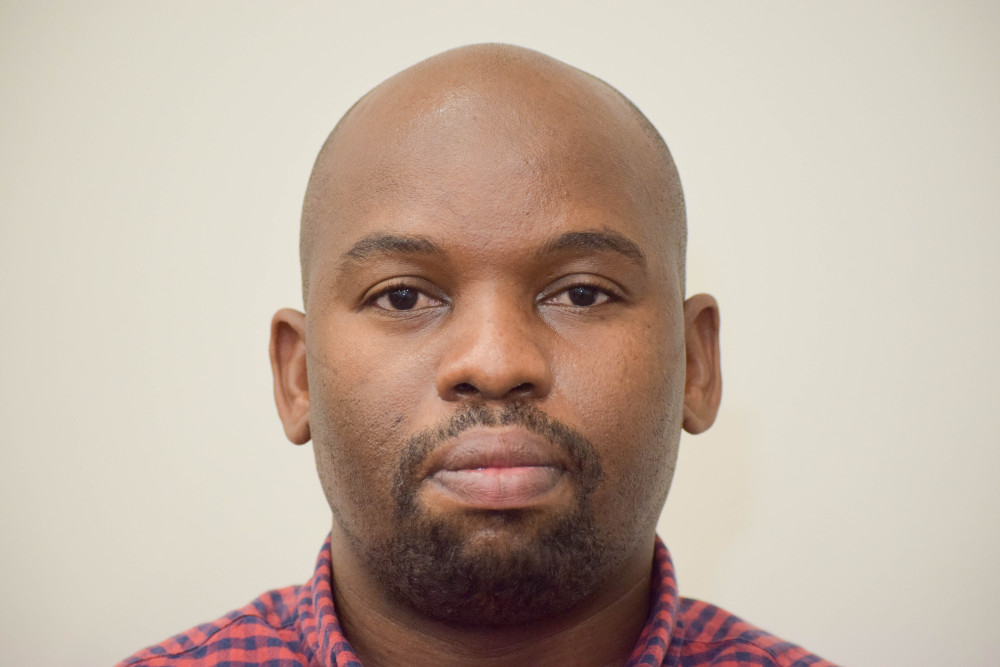 Dr Simo Zulu
Dr Simo Zulu
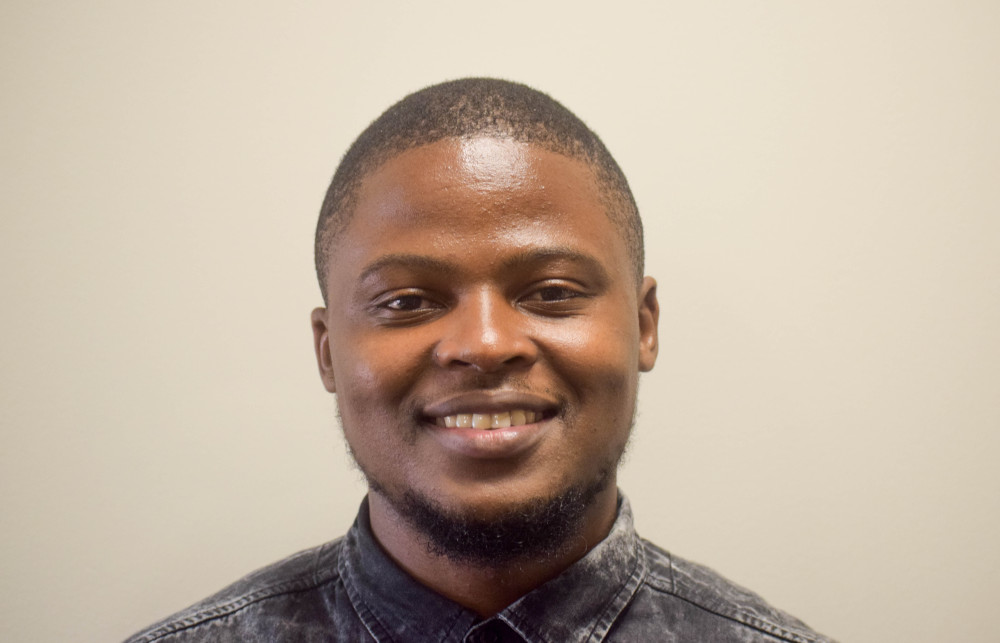 Philanathi Mabena
Philanathi Mabena
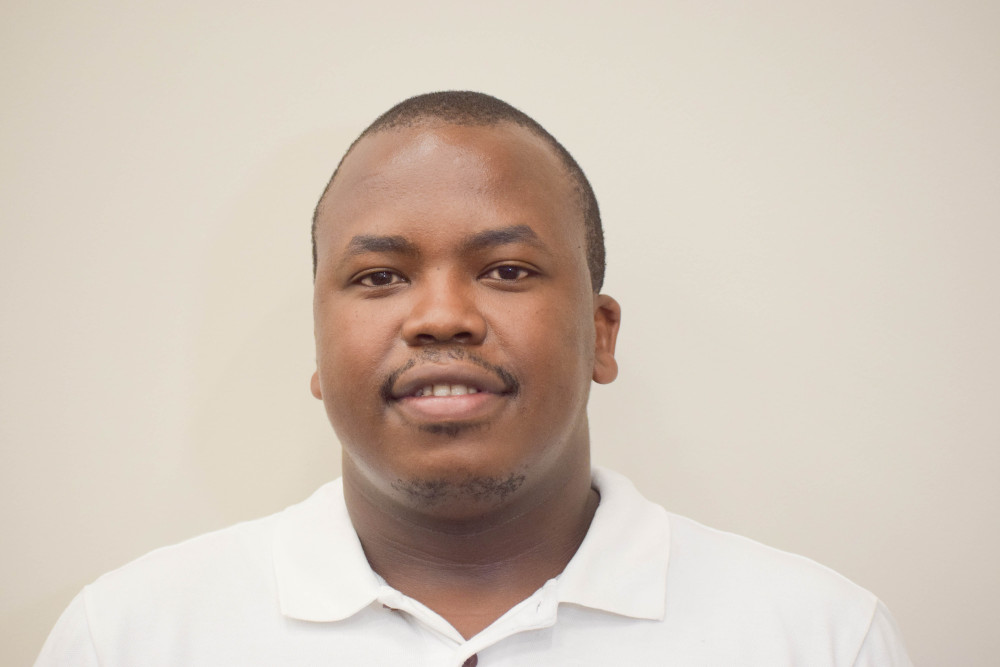 Dr Zithulele Tshabalala
Dr Zithulele Tshabalala
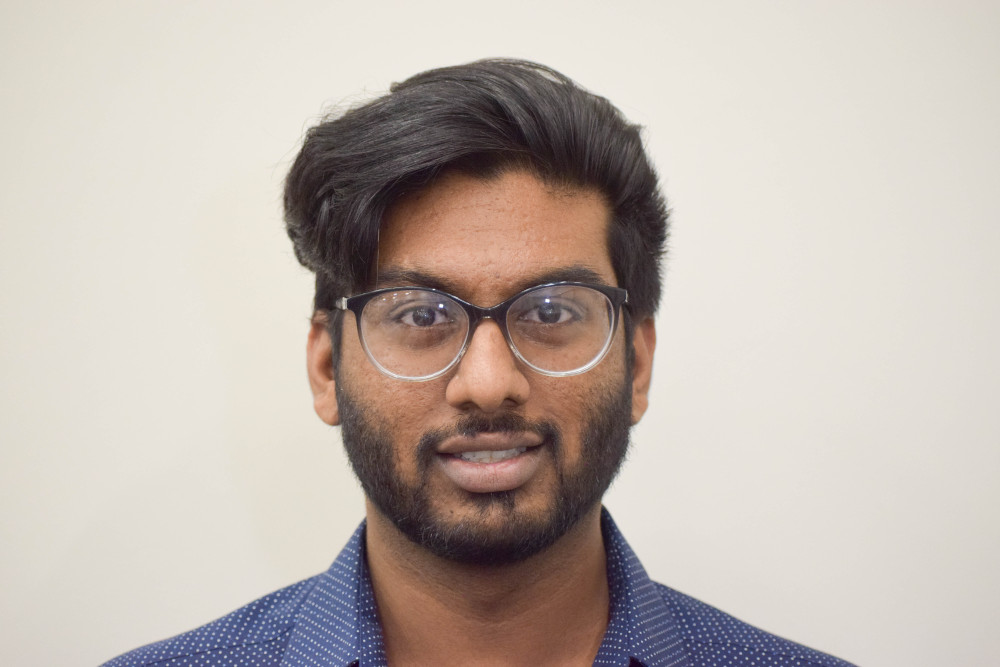 Joastin Naidoo
Joastin Naidoo
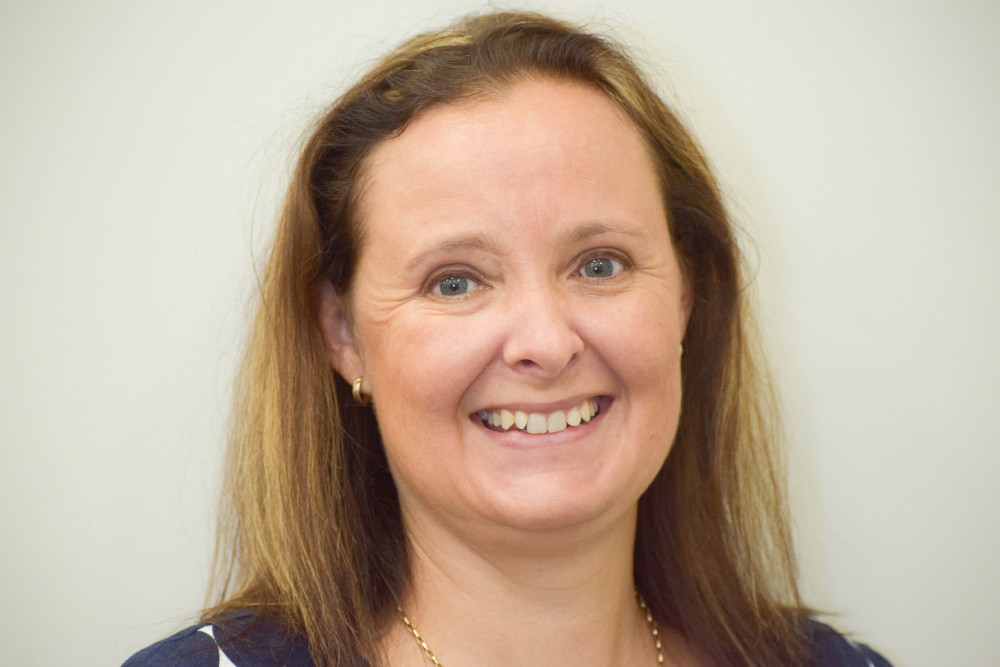 Michelle Butler
Michelle Butler
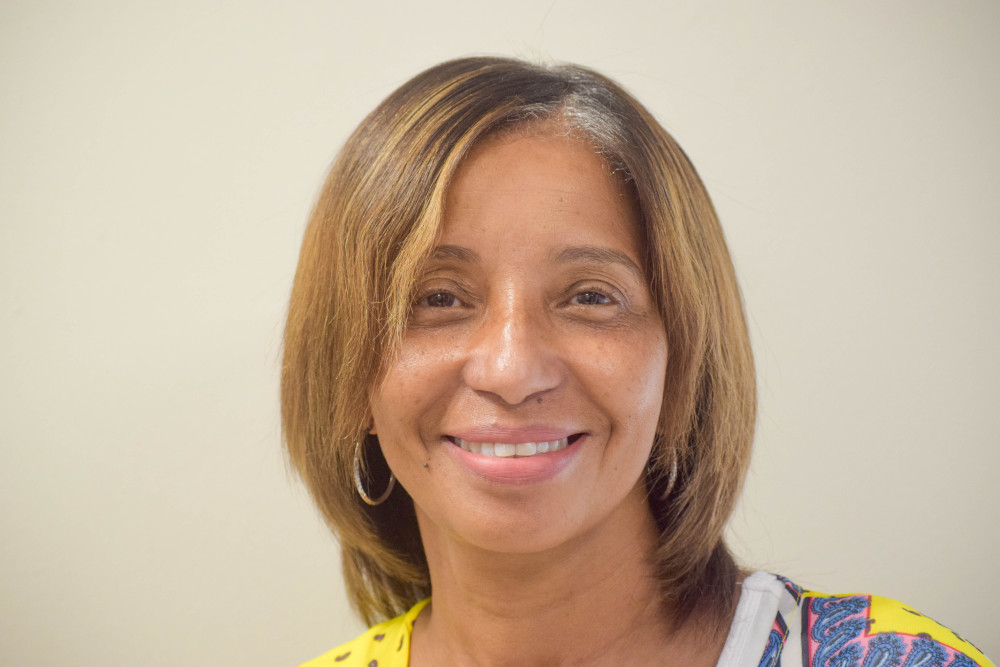 Marie Williams
Marie Williams
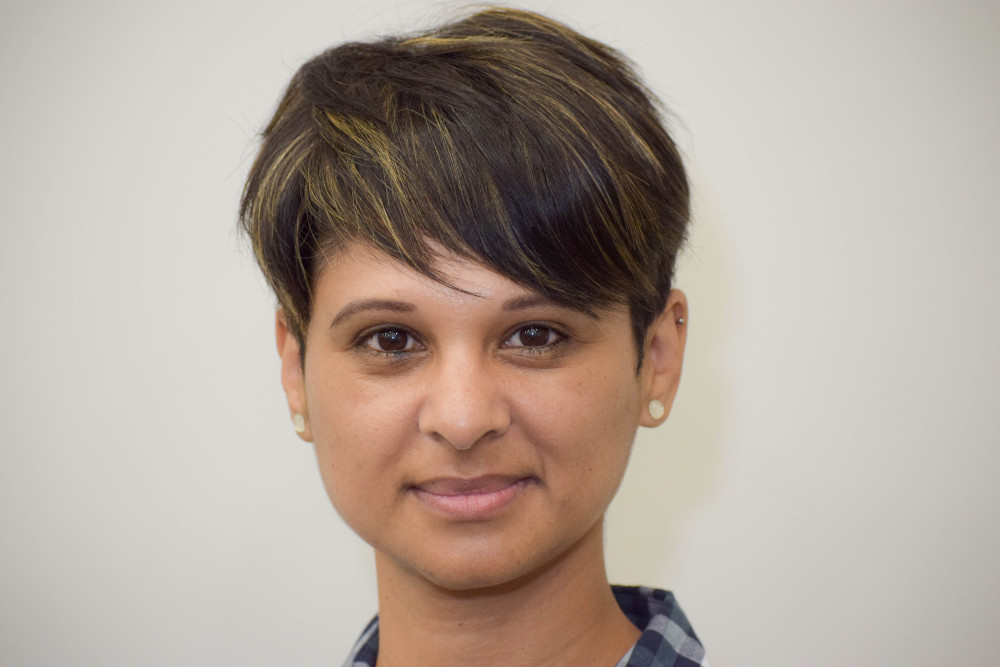 Megan Connelly
Megan Connelly
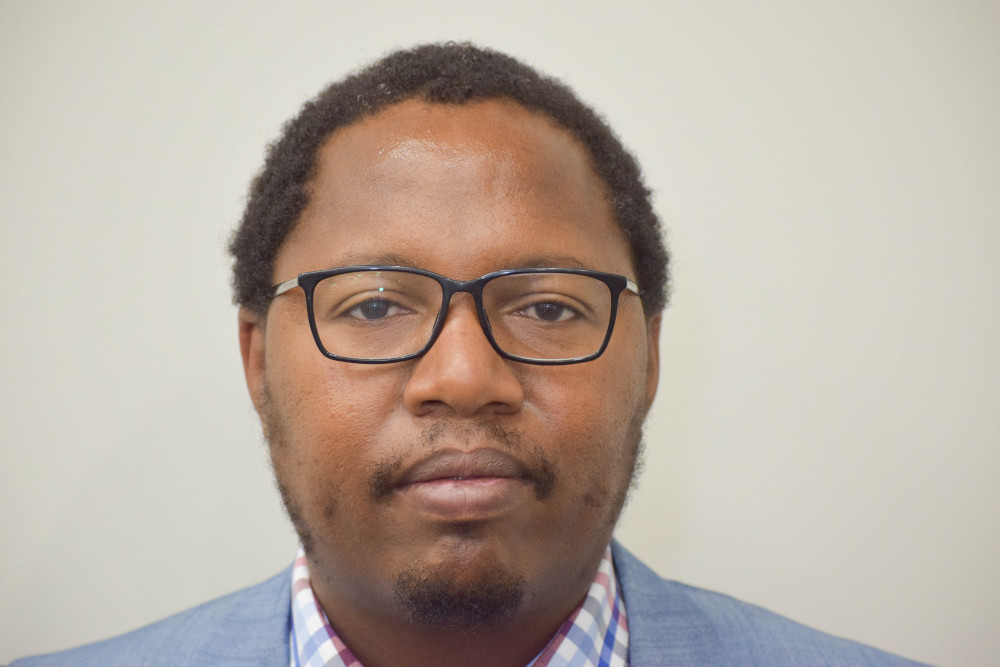 Professor Fikile Nomvete
Professor Fikile Nomvete
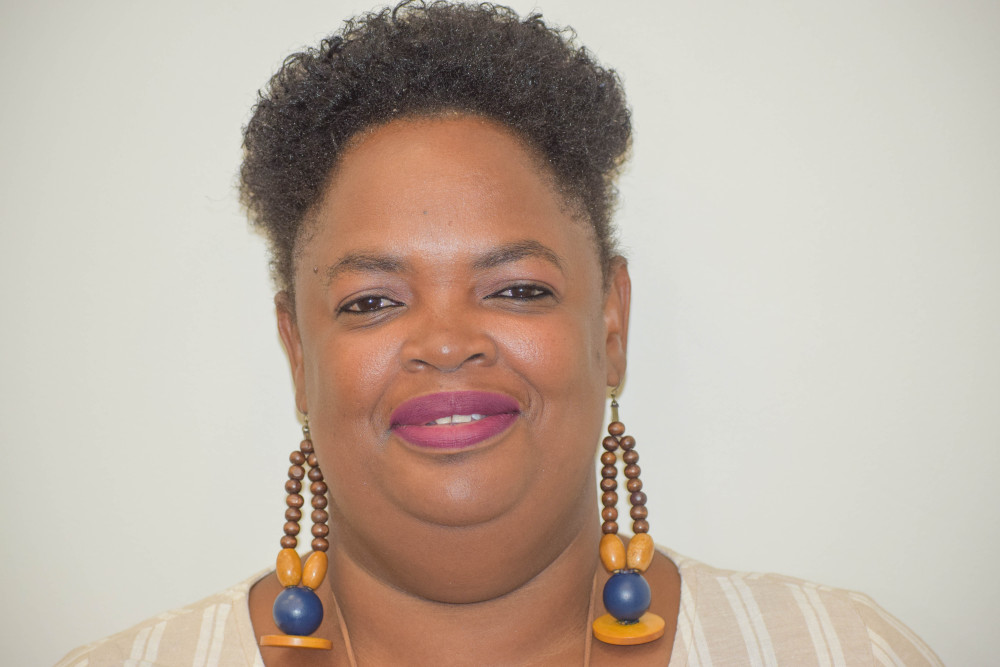 Ntomboxolo Ndima
Ntomboxolo Ndima
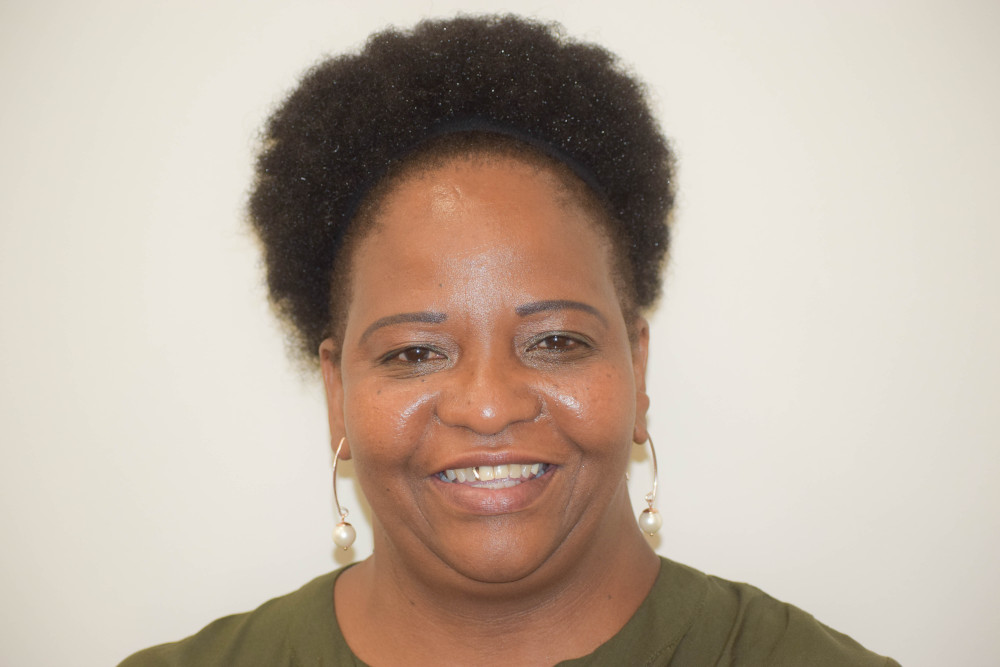 Zoleka Mpompa
Zoleka Mpompa
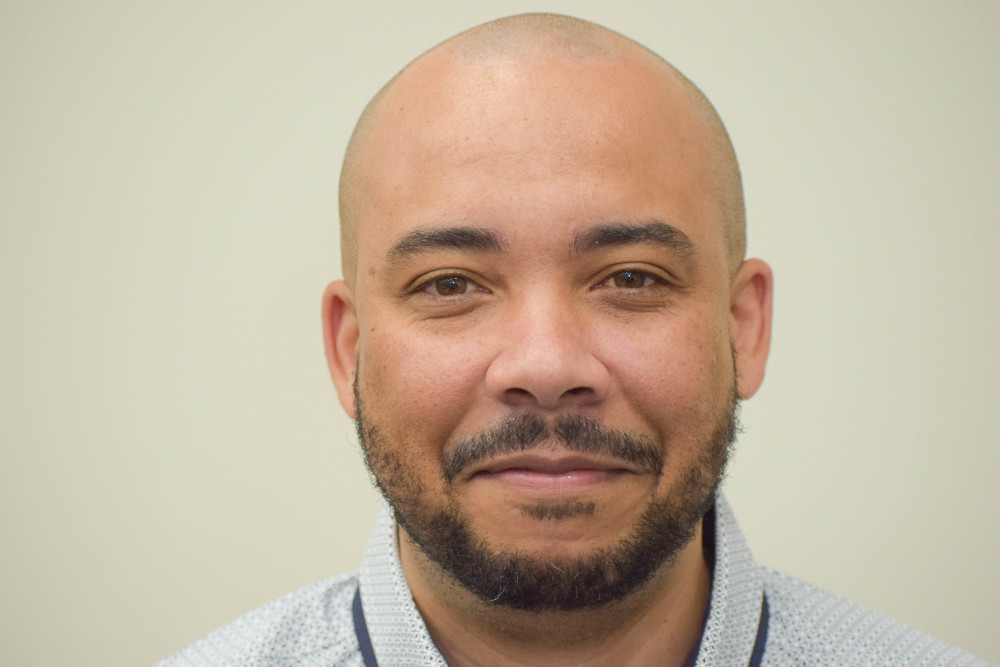 Sherwin King
Sherwin King
—————————————————————————————————————————————————————————————